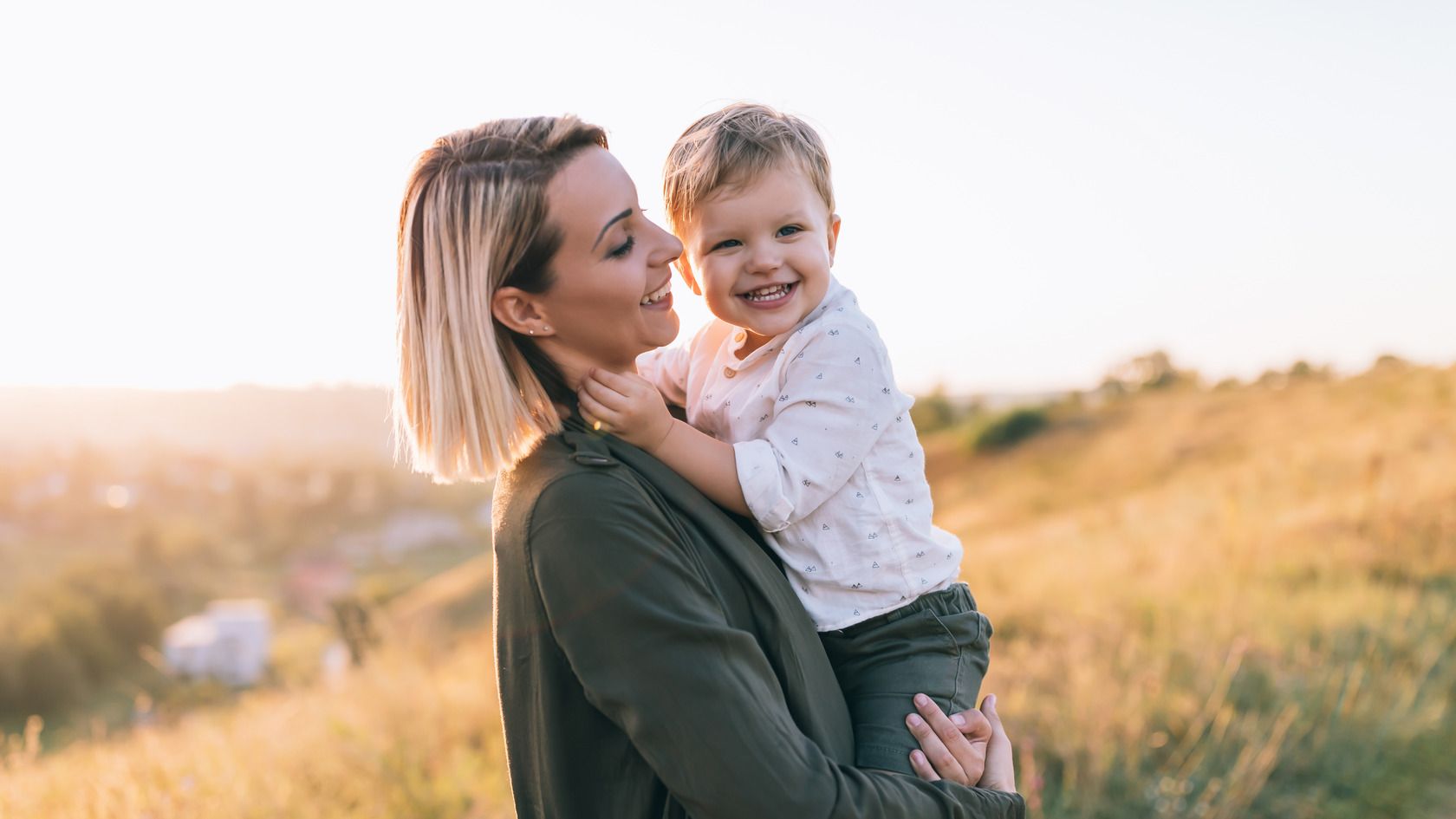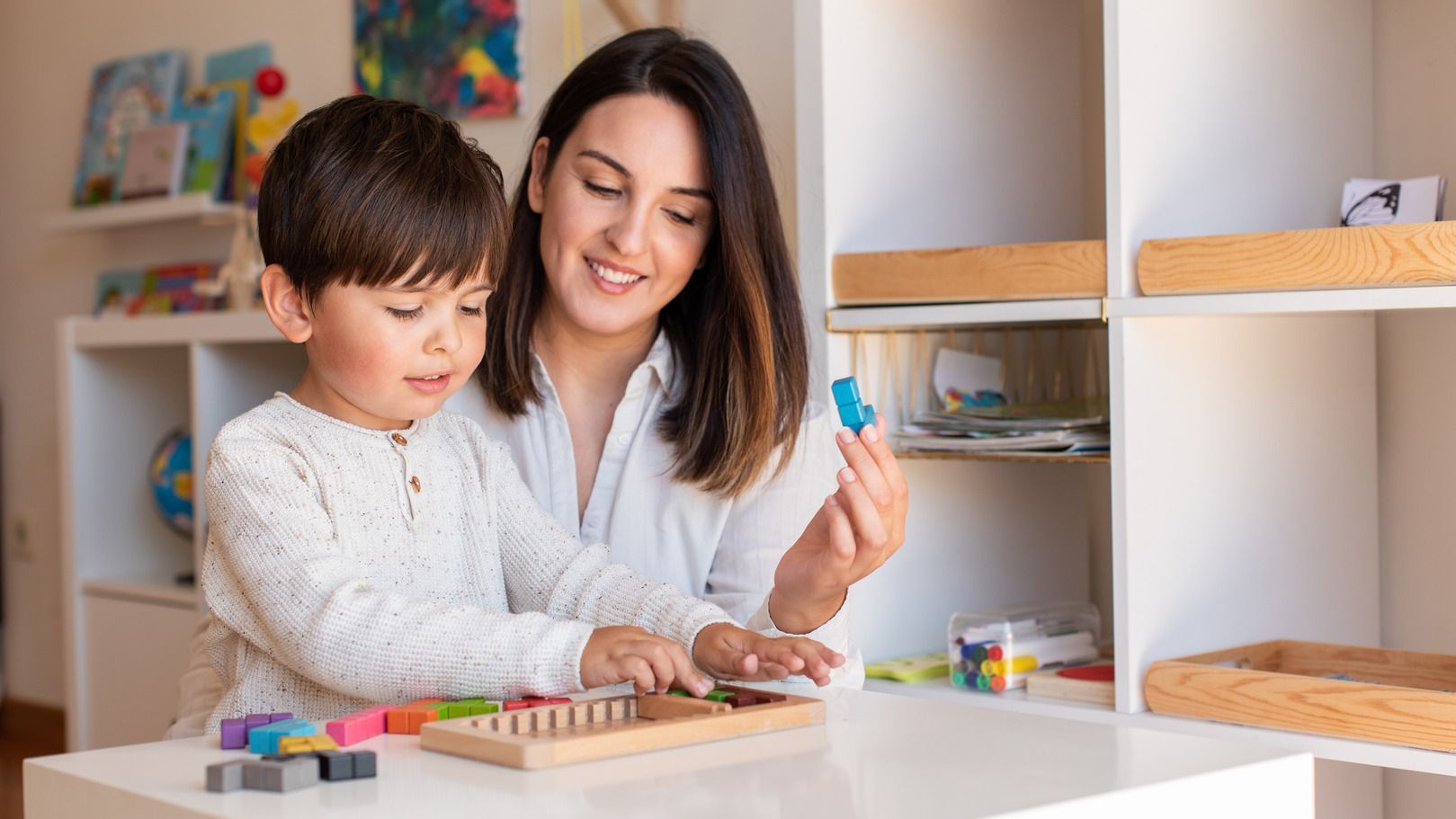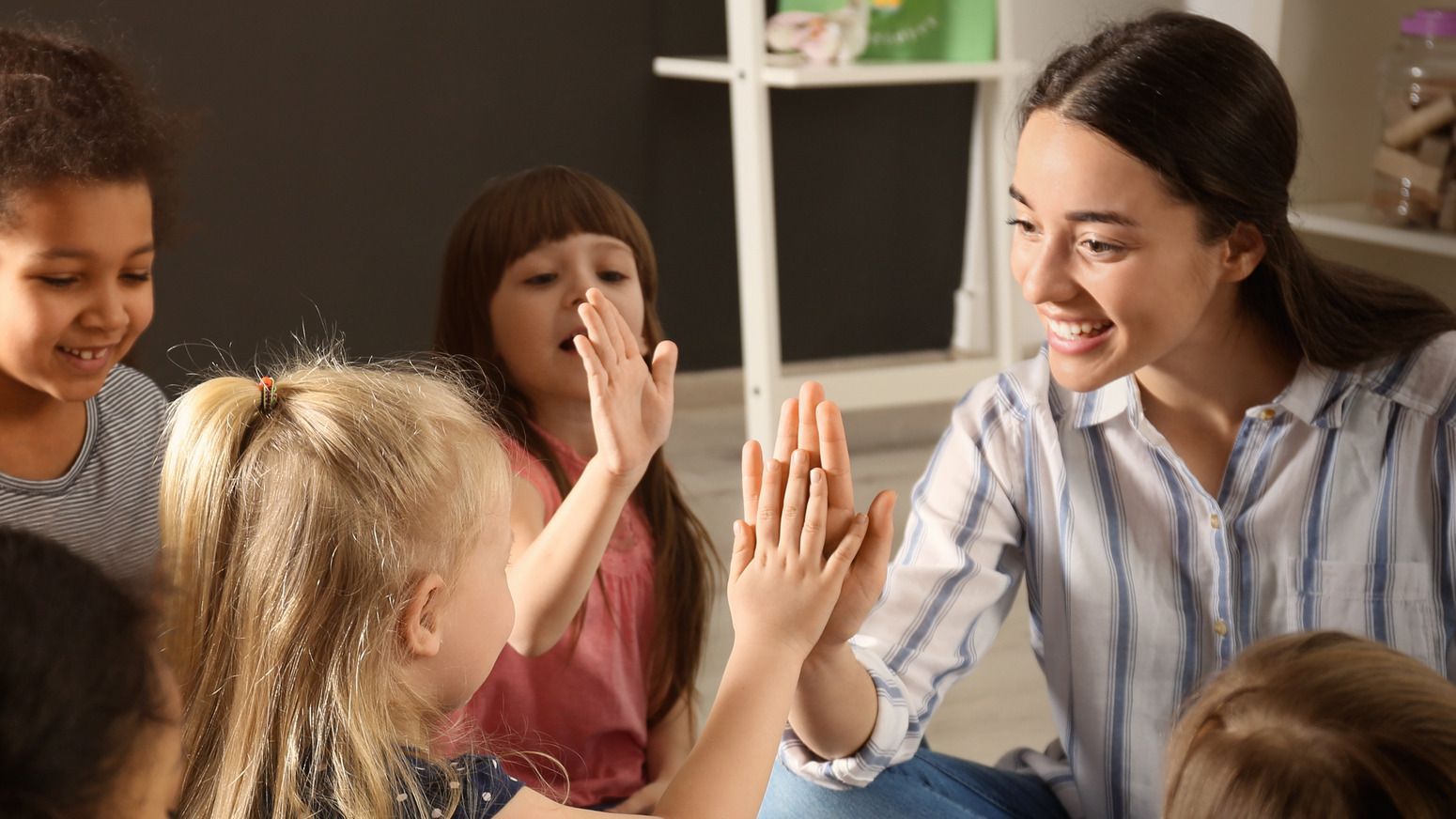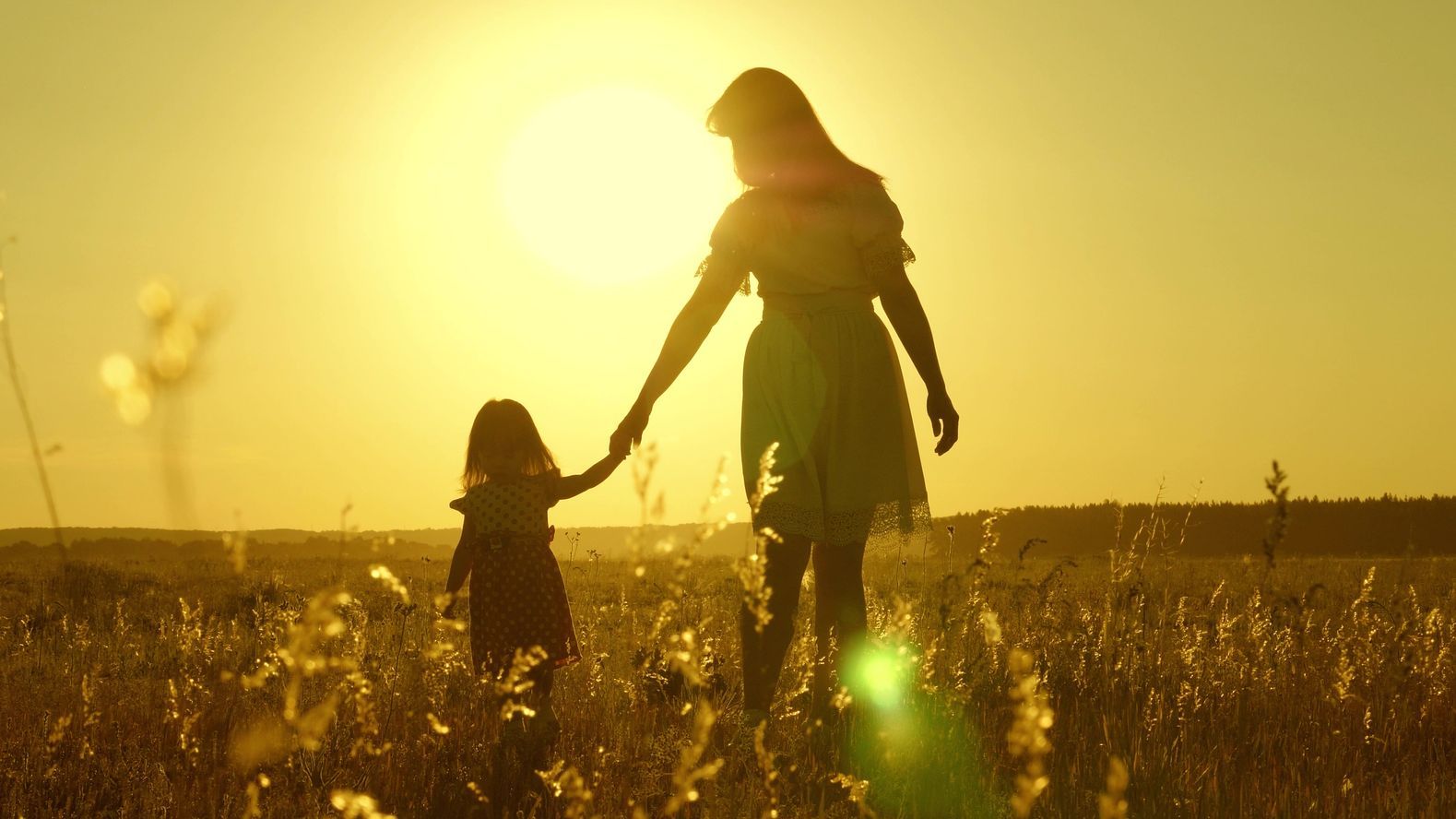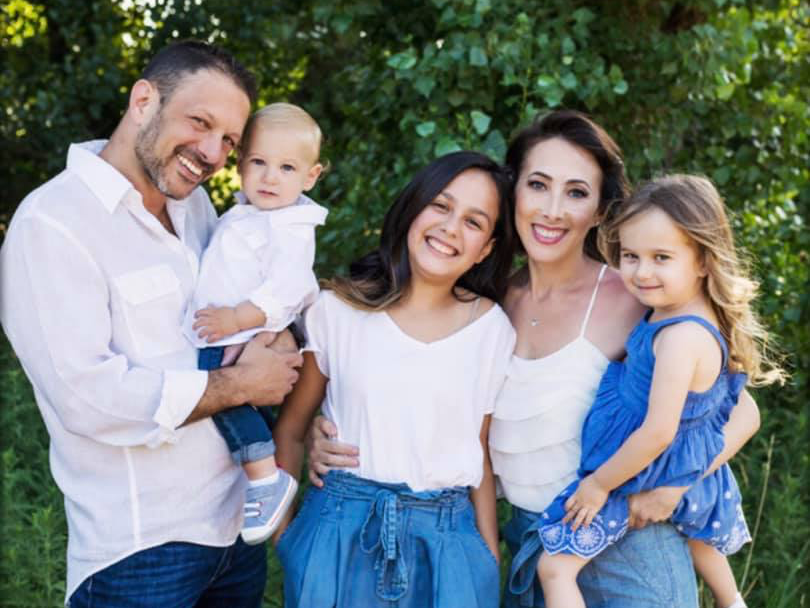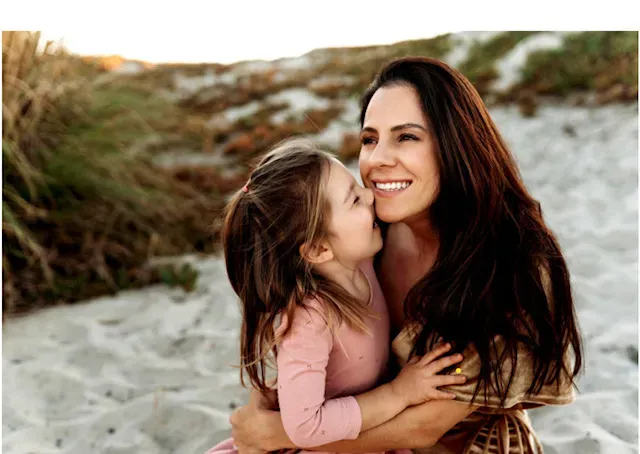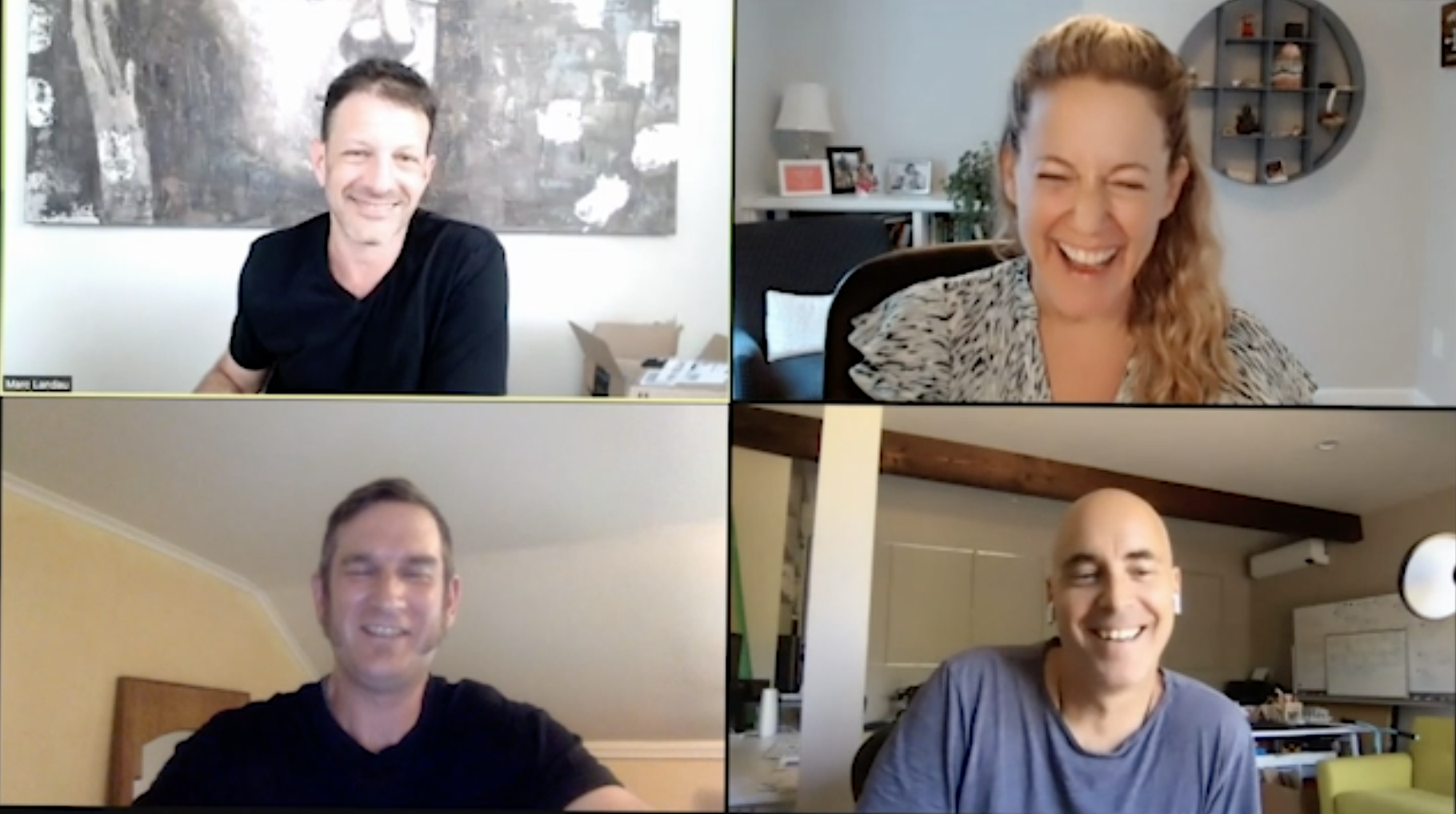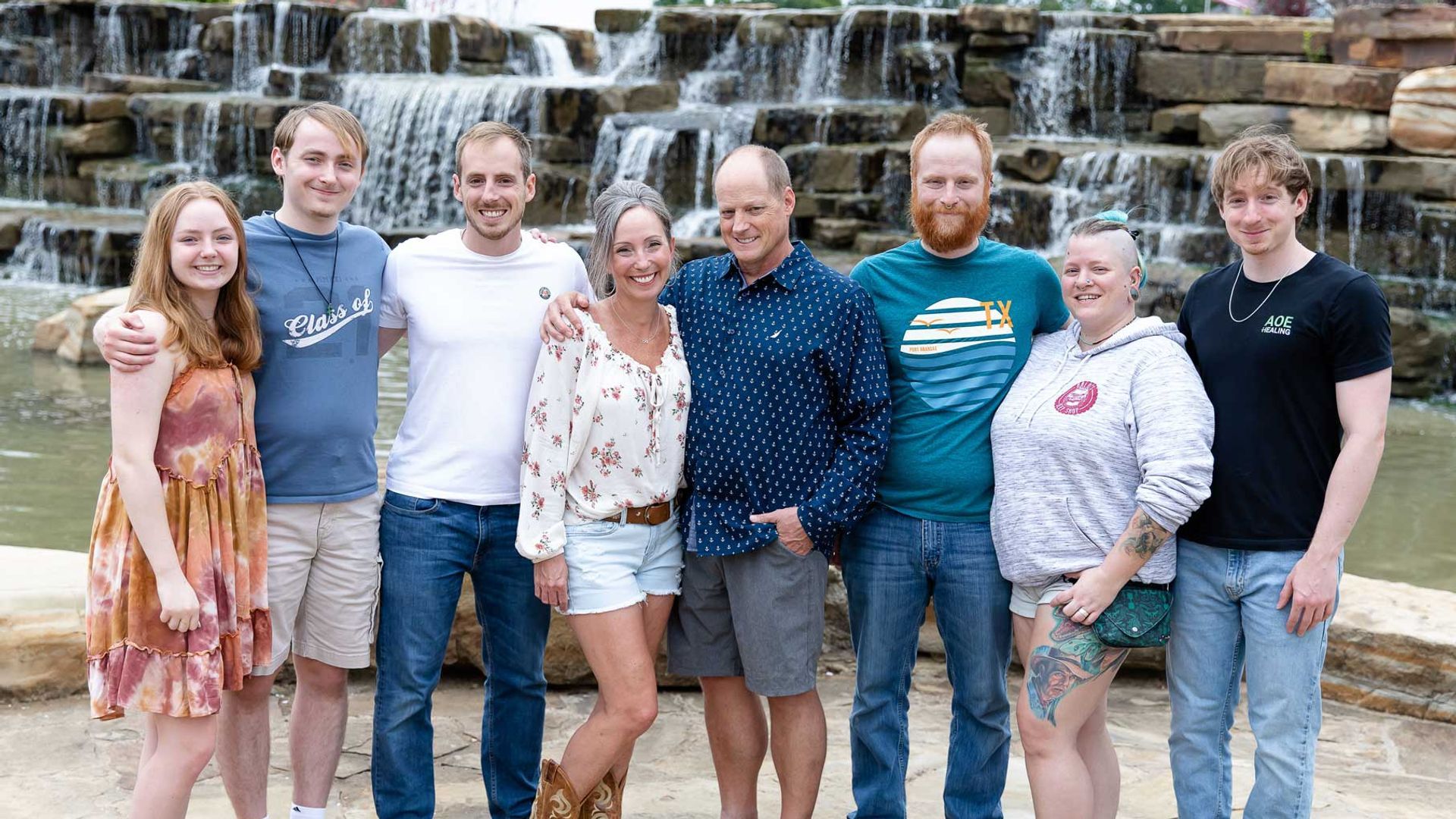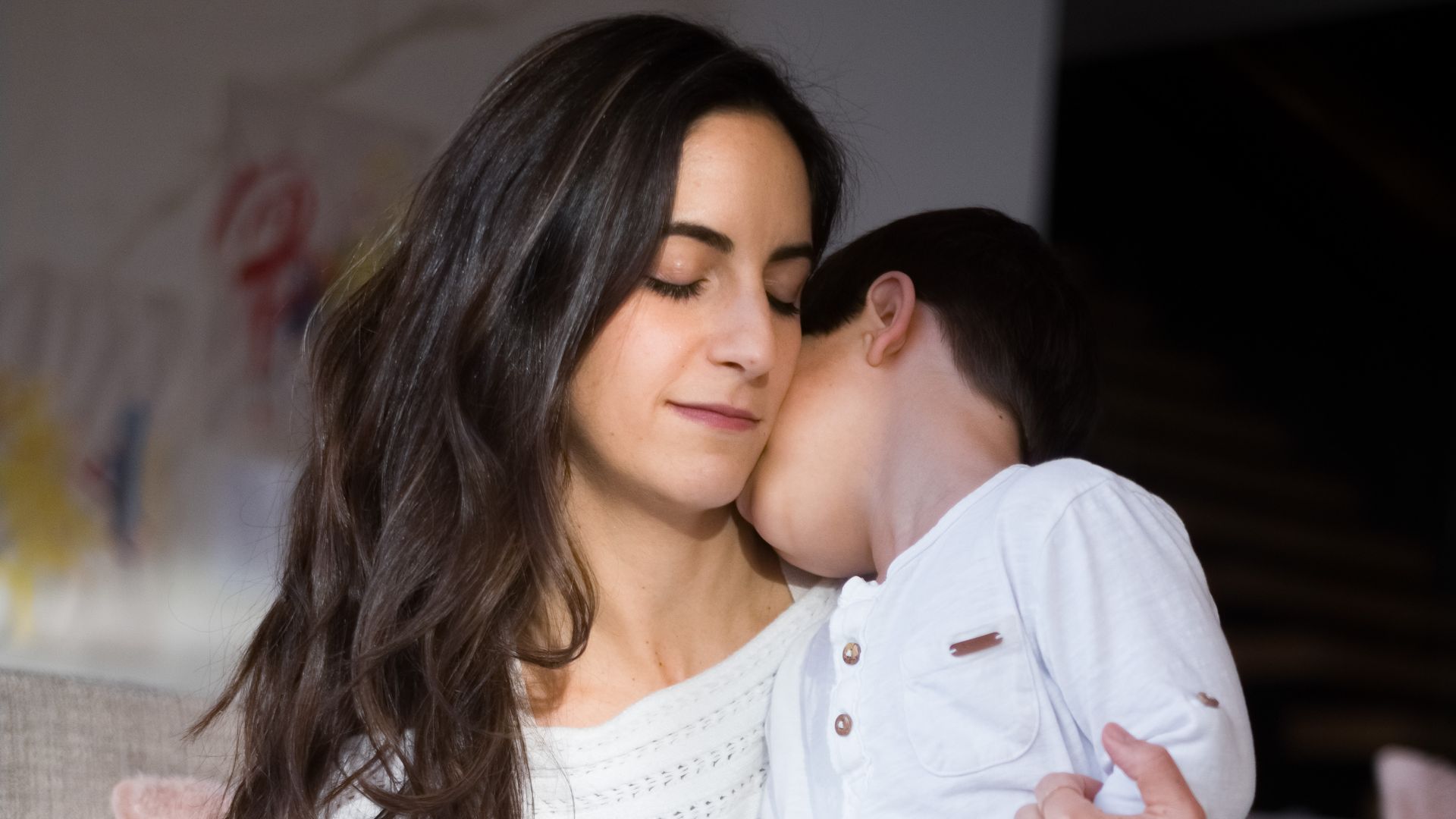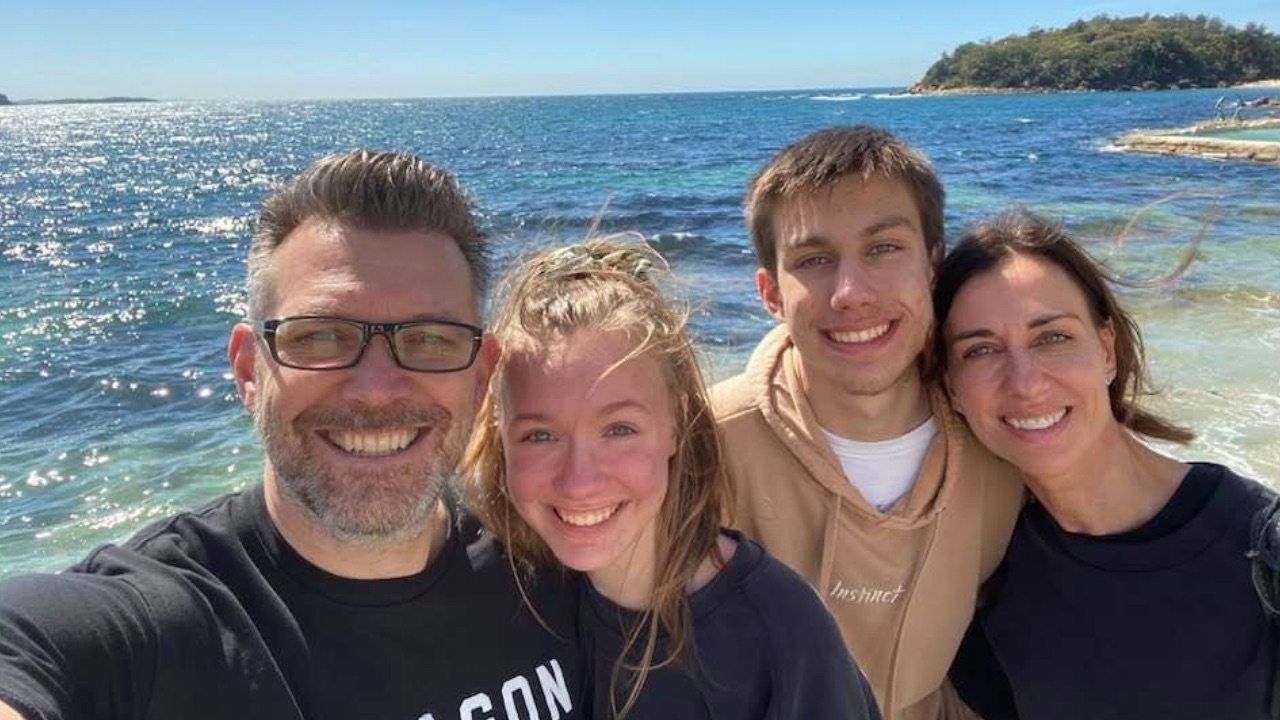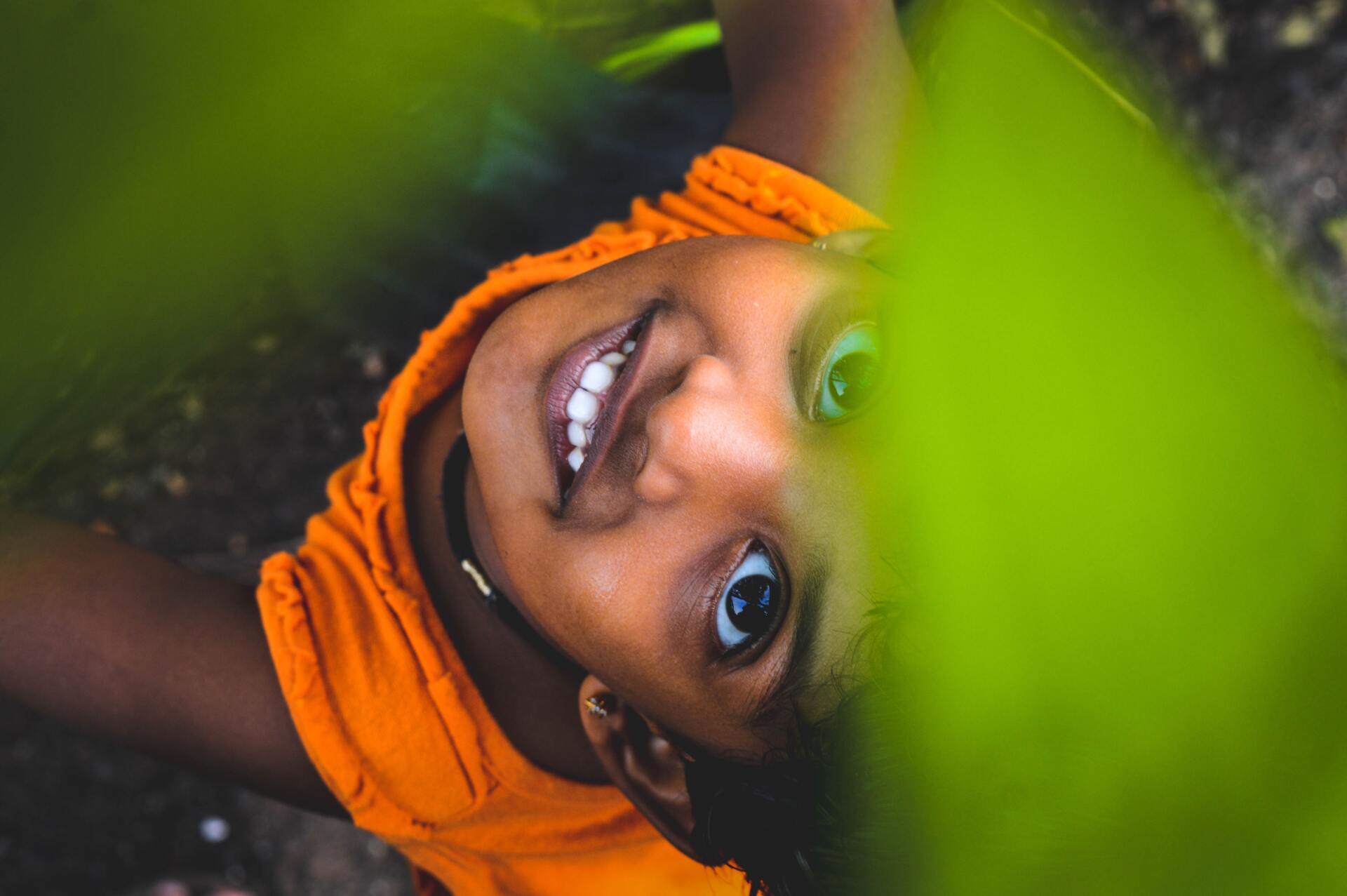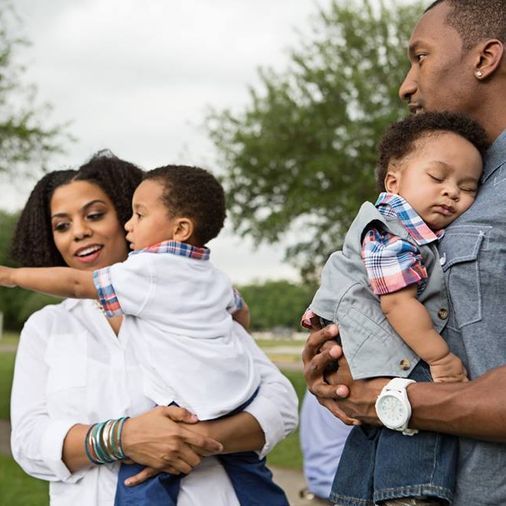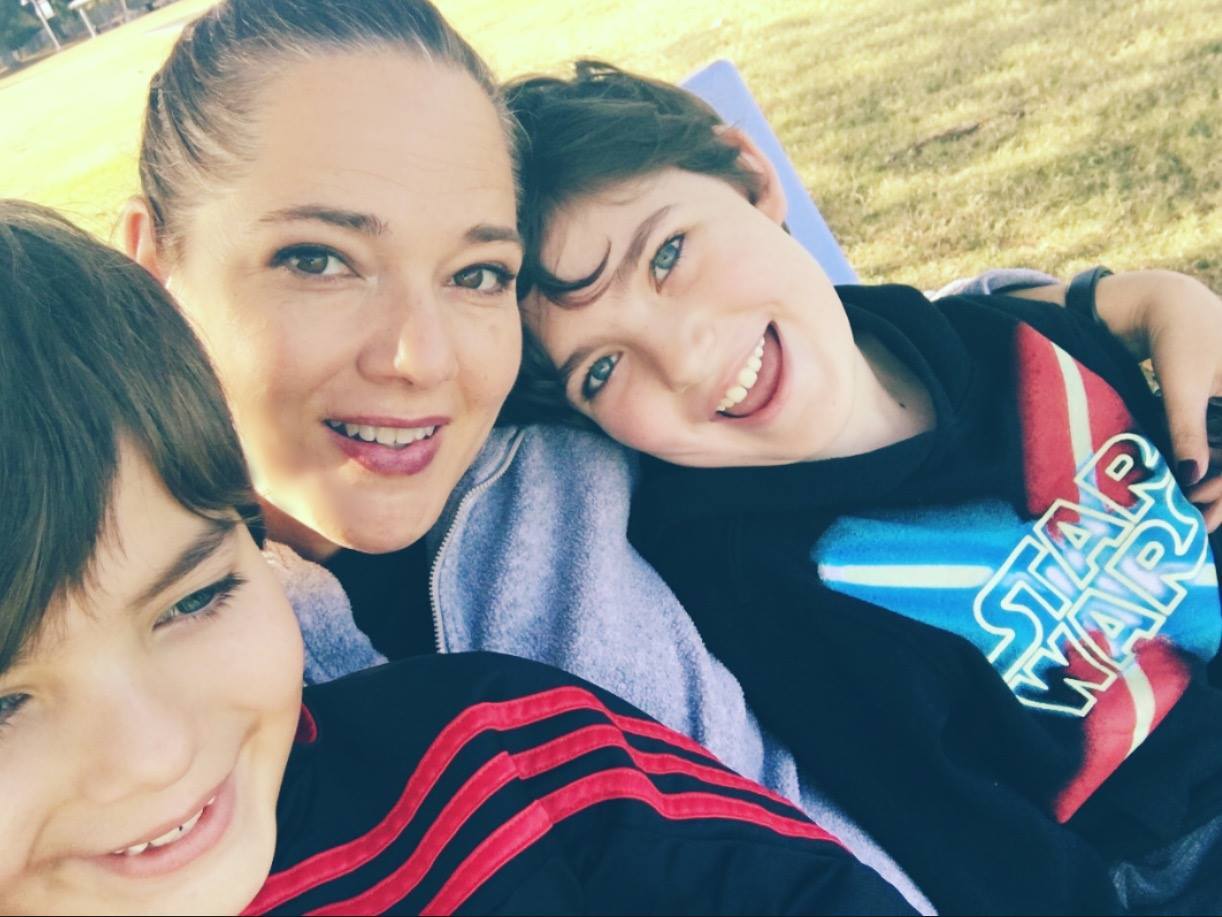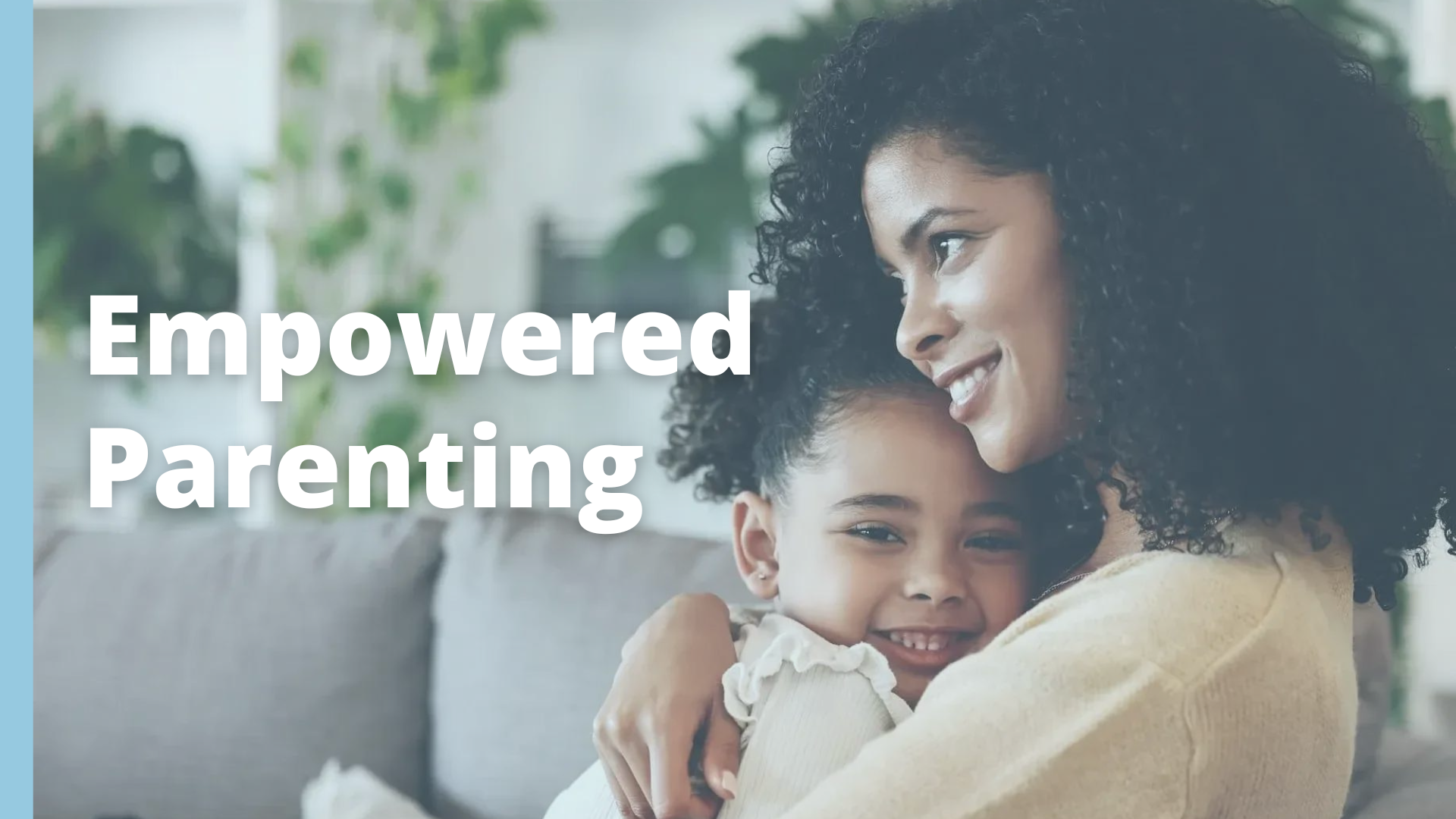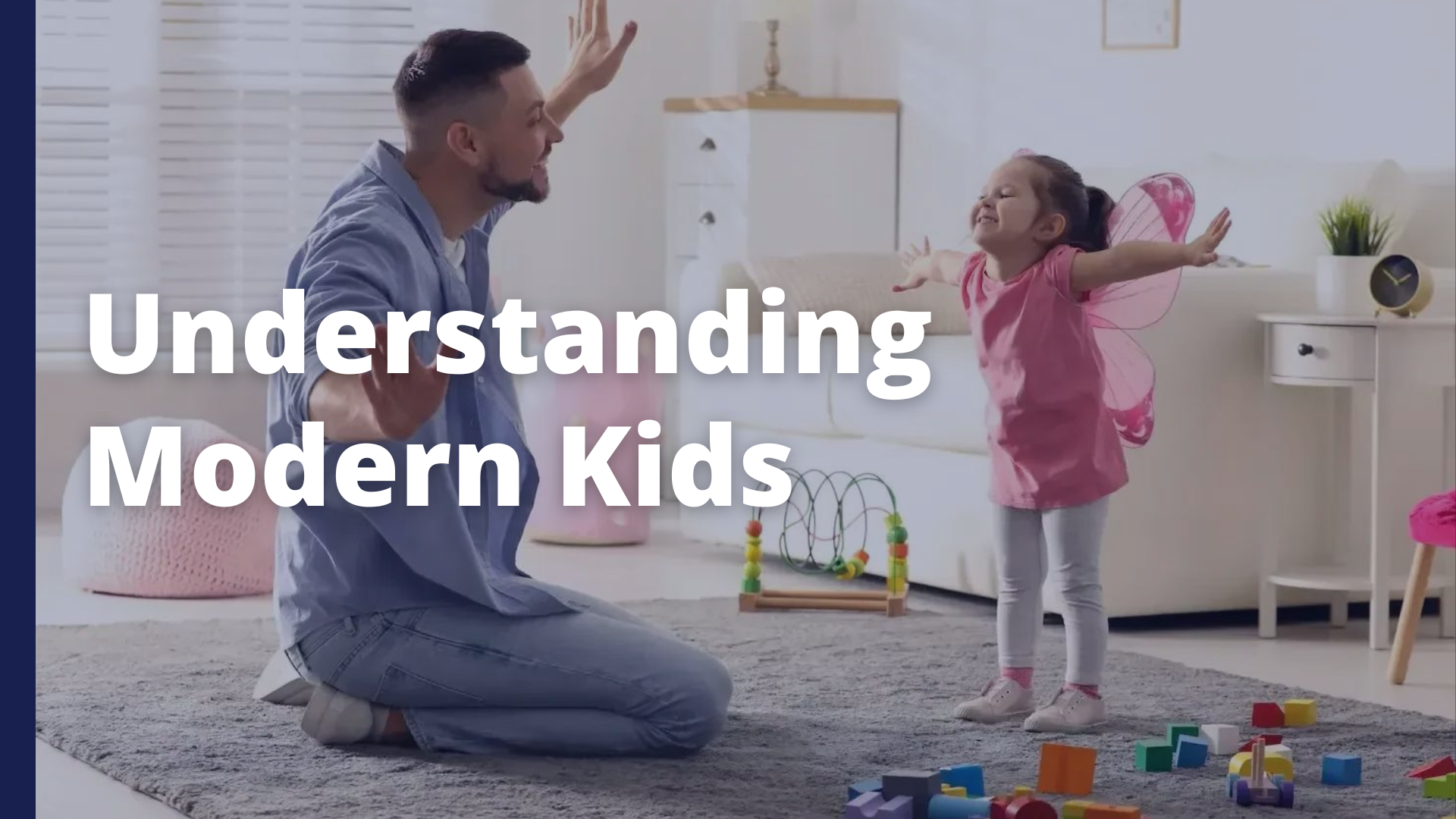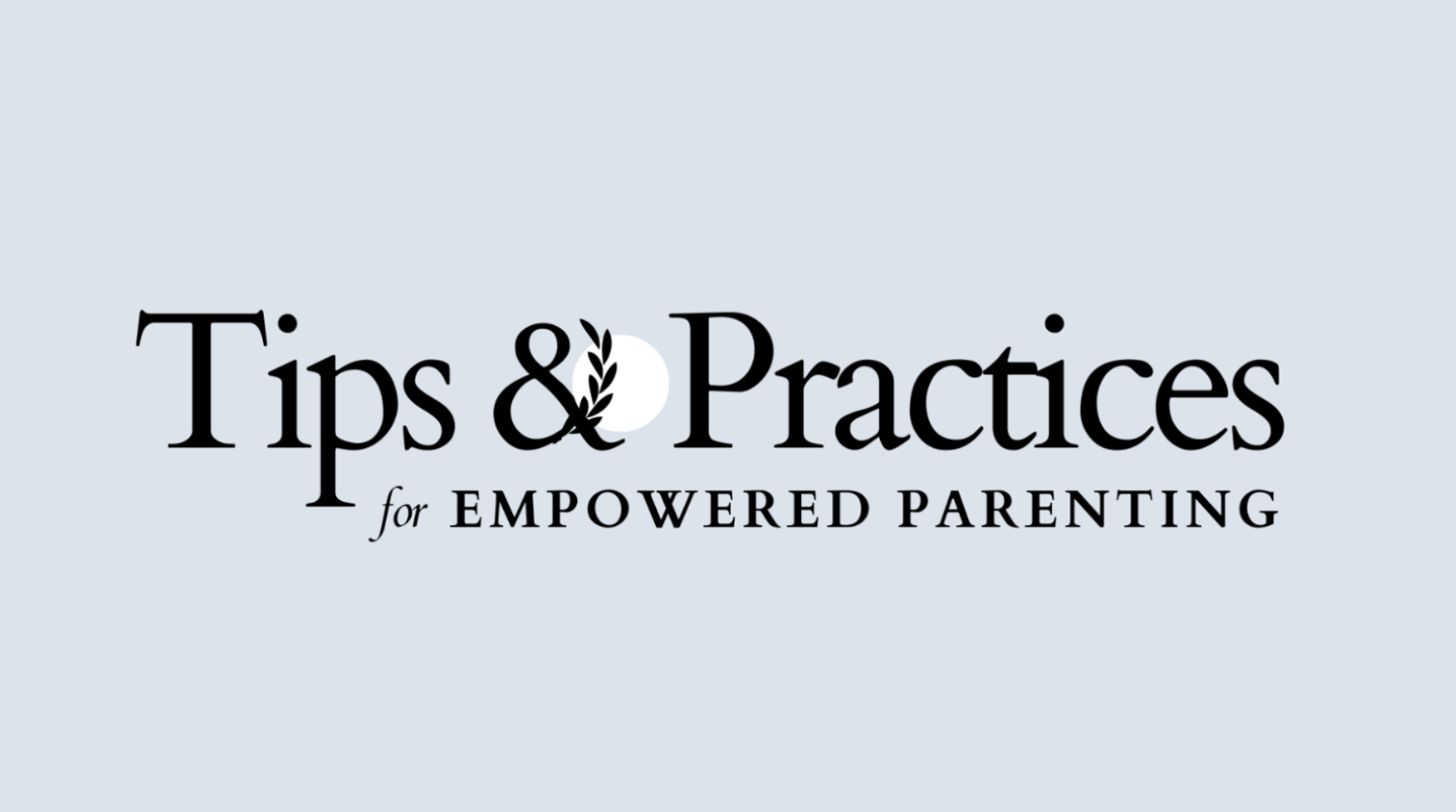
Many parenting struggles don’t come from a lack of effort or love. They come from a mismatch. A child is overwhelmed, distracted, rigid, or explosive, and the adult response is to push harder, explain better, repeat the rule louder, or add consequences. But what if the problem isn’t the child’s willingness… And it isn’t the parents’ commitment? What if the issue is that we’re asking a developing nervous system to function in a way it simply can’t yet? At Jai, we teach that behavior is neither a moral nor a motivational issue. It’s a communication issue, rooted in brain development, stress, and capacity. And when parents understand how a child’s brain learns, adapts, and shuts down under pressure, everything about their approach begins to shift.
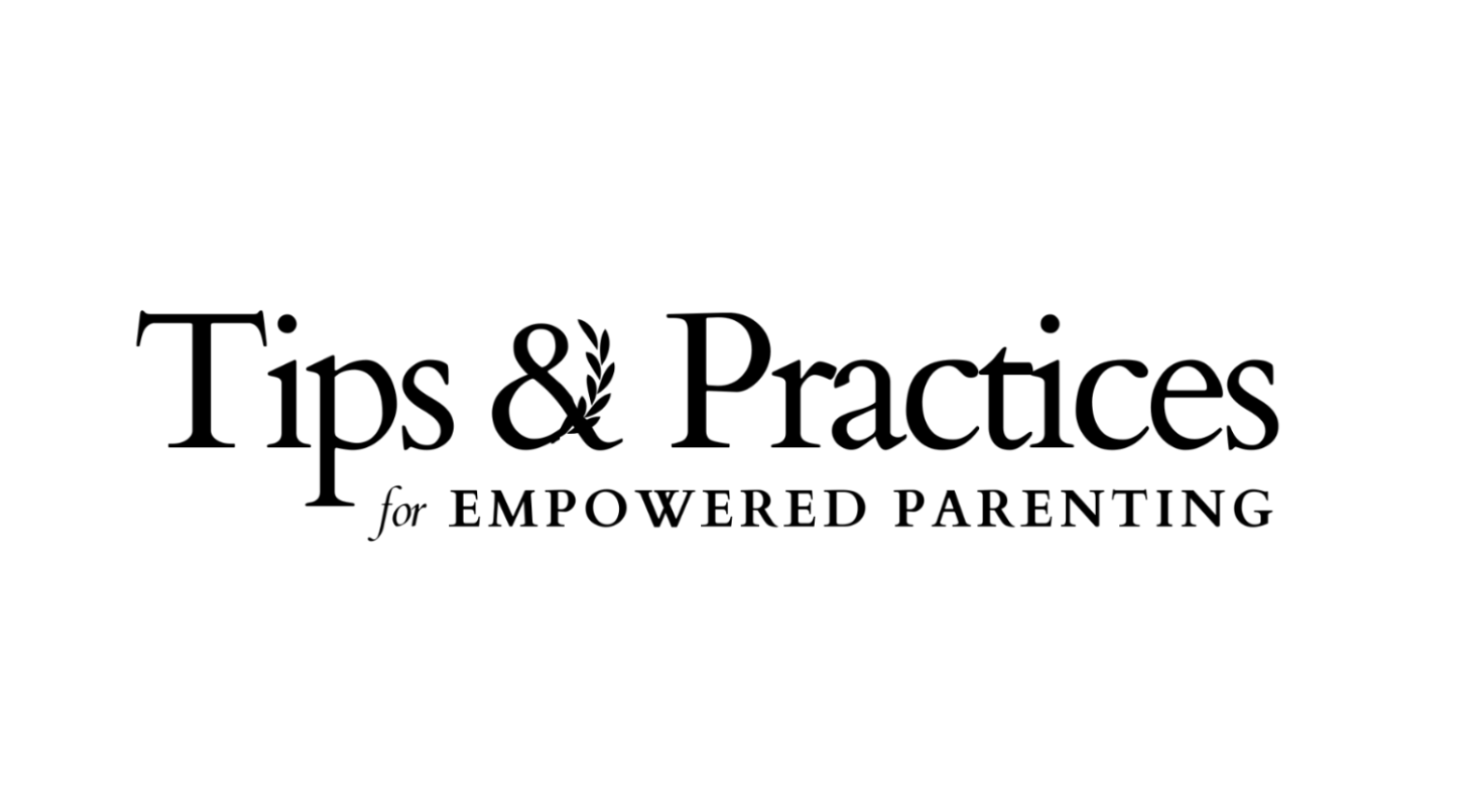
Valentine’s Day tends to focus our attention on love as something we give : cards, gestures, words, affection. But the kind of love that most deeply shapes a child isn’t performative or sentimental. It’s quieter. Steadier. And often much harder. It’s the kind of love that says: You don’t have to change who you are for me to stay close. For many parents, this kind of love feels counterintuitive, especially when a child is struggling, acting out, or not meeting expectations. Yet this is the love that makes growth possible.

Parents often come to us exhausted by behavior: big reactions, shutdowns, defiance, tears that seem to come out of nowhere. The common question is: How do I make this stop? But underneath that question is usually something more tender: What is my child trying to tell me, and why can’t they just say it? Children aren’t being difficult on purpose. They’re communicating with the tools they have. Let’s keep it real: many adults struggle with communicating their needs effectively, especially when they are tender. And our children don’t have the life experience or maturity that we do, so they grasp and react and express in ways that are available to them. And their behavior is often the loudest. This doesn’t mean that we IGNORE unwanted behavior. It means we meet it through a different lens.

Children don’t come into the world believing in themselves. They learn to believe, slowly and relationally, through thousands of small moments when someone steady reflects back: I see you. I trust you. You matter. When parents feel unsure, overwhelmed, or self-critical, it’s easy to assume confidence is something a child either has or doesn’t. But self-belief isn’t a personality trait. It’s a relational inheritance.

Wanna know our secret sauce? Children don’t thrive without structure. They need boundaries, consistency, and leadership. But behavior doesn’t shift simply because those things are enforced more firmly. It shifts when children feel safe inside the relationship where that guidance is coming from. Most of us were raised in systems that prioritized correction over connection, and compliance over confidence. So when things feel hard at home, the instinct is often to tighten control or try harder strategies, or abandon ship and collapse our leadership. Real change almost always starts somewhere else. It starts when a child feels safe , valued, and fundamentally okay in the eyes of the adults guiding them.

One of the hardest moments in parenting is watching our child be unhappy and realizing we can’t fix it. The tears, the frustration, the disappointment… they pull on every instinct we have to soothe, distract, or make it stop. But what if those moments aren’t a problem to solve; they’re a capacity to build? At Jai, we teach that children don’t grow through constant happiness. They grow through feeling met in the full range of their emotional experience, especially the uncomfortable parts.

There’s a quiet pressure many parents live under: The belief that being a good parent means being endlessly available, patient, and self-sacrificing. That if we just try harder, push through, or ignore our own needs a little longer, we’ll show up better for our kids. But parenting doesn’t actually work that way. When your nervous system is depleted, even the most loving intentions collapse under stress. What looks like “not enough patience” or “too much reactivity” is often a sign of exhaustion: emotional, physical, or relational. And no amount of willpower can override that for very long.

As we step into a new year, there’s often a quiet pressure to start fresh . To be more patient, more consistent, more intentional. But here’s something I want you to hold gently: Parenting transformation doesn’t begin with doing more things. It begins with seeing things differently. When we begin to see behavior as communication, rather than defiance, incompetence, or disrespect, we can become our child’s advocate, mentor, and guide. When children feel unsure of their place, unsure of their competence, unsure of whether they truly matter, behavior becomes the language of that uncertainty. And no amount of consequences, lectures, or sticker charts can reach a child who doesn’t feel seen as capable and included. The work of conscious parenting begins here. Not with control, but with belonging .

Most parenting challenges aren’t actually about what we say or which strategy we choose. They’re about the state we’re in when we show up. We can memorize scripts, read every book, and follow every “gentle parenting” guideline and still find ourselves snapping, shutting down, or spiraling when things get hard. That’s not a personal failure. It’s physiology. Parenting asks something deeper of us than information ever could. It asks us to lead from the inside out.

Most parents talk a lot . We explain. We correct. We try to help our children “see the bigger picture.” And it usually comes from love. But often, what a child actually needs in those moments isn’t more words—it’s more presence. Listening sounds easy. In real life, it can be one of the most challenging practices in parenting, especially when emotions are high and your own nervous system is activated.Most parents talk a lot. We explain. We correct. We try to help our children “see the bigger picture.” And it usually comes from love. But often, what a child actually needs in those moments isn’t more words—it’s more presence. Listening sounds easy. In real life, it can be one of the most challenging practices in parenting, especially when emotions are high and your own nervous system is activated.

Most of us were raised to believe that good parenting looks like fixing. Answering quickly. Smoothing things over. Offering the “right” solution before the feelings get too big. And it makes sense. When our children struggle, our nervous system wants relief, like… yesterday. So we reach for advice, logic, or reassurance, hoping it will make the discomfort disappear. But here’s the quieter truth we see again and again in our work at Jai: Growth doesn’t come from being rescued. It comes from being accompanied. When a child wrestles with a problem, whether it’s social, emotional, or internal, they’re not failing. They’re practicing. They’re learning: How to tolerate frustration How to hear their own inner voice How to trust themselves under pressure What they need most in those moments isn’t a plan. It is presence.

Most of us were raised in a world that measured children by who they would one day become. “When you grow up…” “If you want to be successful…” “Someday you’ll thank me for this…” The message underneath was clear: Who you are now is not enough. So it makes sense that today’s parents, even the deeply intentional ones, can sometimes slip into that old lens without realizing it. We rush developmental milestones. We correct behavior to avoid future problems. We parent with an eye toward “outcomes.” And yet… Every child is already a full human being, not a future project. Their emotions matter now. Their perspective matters now. Their needs matter now. When parents shift from “Who will my child become?” to “Who is my child right now?”... Everything softens. Pressure drops. Curiosity rises. Connection strengthens. And behavior often begins to shift naturally, because the child is finally seen. This is the heart of conscious, nervous-system-informed parenting: Supporting the human in front of you, not just the adult they will eventually grow into.

It’s not a great feeling… That quiet ache when you hear yourself say something your parents once said to you… that felt awful for you as a child. Or when you see your child’s face fall, and it reminds you of a moment you remember all too well. Sometimes, the hardest part of parenting isn’t managing our children. It’s meeting the younger version of ourselves that still lives inside us. You want to do better, to parent differently. But “different” doesn’t always come naturally when your nervous system was shaped by what you’re trying to unlearn.

Maybe you’ve been here before… Your child hesitates before showing you a drawing. They look up, searching your face. “Do you like it?” they ask. You smile, of course! “It’s beautiful!” But then you might notice how their eyes stay on you a little too long, waiting for something more than praise. In that tiny moment, you can feel it: they’re checking to see if they’ve earned your approval. We all want our children to feel proud, to do well, to care about how their actions affect others. But when love becomes something they have to work for, through achievement, behavior, or compliance, the foundation of safety begins to wobble.

It happens so quickly… Your child bursts into tears. You don’t even know why. Maybe they stubbed a toe, or a sibling said something mean. You hear the sobs and feel your body tense. You rush in. “What’s wrong?” you ask… maybe a little too urgently. Your child cries harder. Maybe they turn away or can’t find the words at all. We have the best intentions when we jump in. We want to understand, to help, to make it better. But in our rush to fix, we sometimes miss what they might need most in that moment… To feel seen. To feel safe.

What if we didn’t need the perfect solution in a hard parenting moment… and instead offered our eyes? When our kids are having a hard time, it’s natural to want to jump in and fix, correct, or teach. We reach for tools. We reach for words. We try to make it better. But in their most dysregulated moments, our kids may not be able to hear our words at all. What they need most is our presence. Our calm. Our eyes... A warm, soft, loving gaze can say: “You’re safe.” “I still see the good in you.” “We’ll get through this together.” Sometimes, our eyes speak more clearly than our words ever could.

Here’s a question to sit with this week: How much of your life do you welcome, and how much do you resist? So much of our suffering comes from fighting what is. When life feels out of control, we tighten, fix, and try to change it. But what if transformation begins not in resistance, but in acceptance? Not the kind that says “fine!” with crossed arms… But the kind that can softly acknowledge: “This isn’t how I wanted it to be.” That honesty can feel tender, especially if we were never taught how to feel our feelings. Yet naming what’s real is often the quickest way through the pain and toward clarity. Because when we act from “this shouldn’t be happening,” we react. When we meet the moment as it is, we respond from wisdom, not fear. And what does that have to do with parenting? Everything. Because we’re not just raising children. We’re teaching them how to be human.

What if even your hardest patterns held hidden strengths? When parents begin exploring attachment, many are surprised to discover that they fall somewhere on the spectrum of insecure attachment, even when they believed they had a “perfect childhood” with “great parents.” The most common insecure attachment styles include: Avoidant Anxious or Ambivalent Disorganized (a combination of avoidant and anxious tendencies) It’s a story we hear often in parent coaching: A client comes in thinking they’re securely attached, only to uncover deeper layers of relational patterning shaped by unmet needs, emotional inconsistency, or the absence of safety. And that realization can bring up grief, defensiveness, or guilt. Because it’s vulnerable to admit that our childhoods were less than ideal, and even harder to hold that truth without blaming the parents who raised us. But here’s what’s also true: All parents are doing the best they can with what they have. And sometimes, that wasn’t enough. The invitation isn’t to diagnose or shame ourselves, but to see the brilliance in our adaptation. Insecure attachment doesn’t mean we’re broken. It means we adapted to survive. Our nervous systems found ways to seek safety, love, and connection, even in less-than-ideal environments. And these adaptations? They come with hidden superpowers.

We all want our kids to grow into independent, thoughtful, and resilient people. We want them to find their voice, trust themselves, and contribute to the world around them. But the path to independence isn't always clear. Our kids need us, biologically and emotionally. They need connection, co-regulation, protection, and attunement. They need to know we’ll be there when things get hard. But if we push them toward independence too quickly, they may internalize the message: “I shouldn’t need anyone.” They learn to armor up. To go it alone. To disconnect. And if we hold on too tightly, never letting them stretch or stumble, they may struggle to trust themselves. They may feel safest only when we're near, unsure how to make decisions or self-soothe without our lead. It’s a delicate balance: How do we stay connected and empower them to stand on their own? It begins with trust. Trusting in their capacity to learn. Trusting in our presence when they fall. And trusting that the goal isn’t to shape them into who we want them to be, but to support them in becoming more of who they already are.

Picture this: you’re at the playground. Your child suddenly throws sand in another child’s face. The other child cries. Your friend looks worried. And you freeze. Conflict everywhere: – Between the kids. – Between you and your friend. – Between your values and your panic. You tell yourself you need to get it right, and fast. Discipline your child, protect your friend’s kid, and show the strangers around you that you’ve got this. No wonder it feels overwhelming. In our rush to fix things, we often move straight into damage control: Blaming. Apologizing too quickly. Skipping over the feelings altogether. But when we skip the feelings, we skip the wisdom too… for ourselves and our kids.
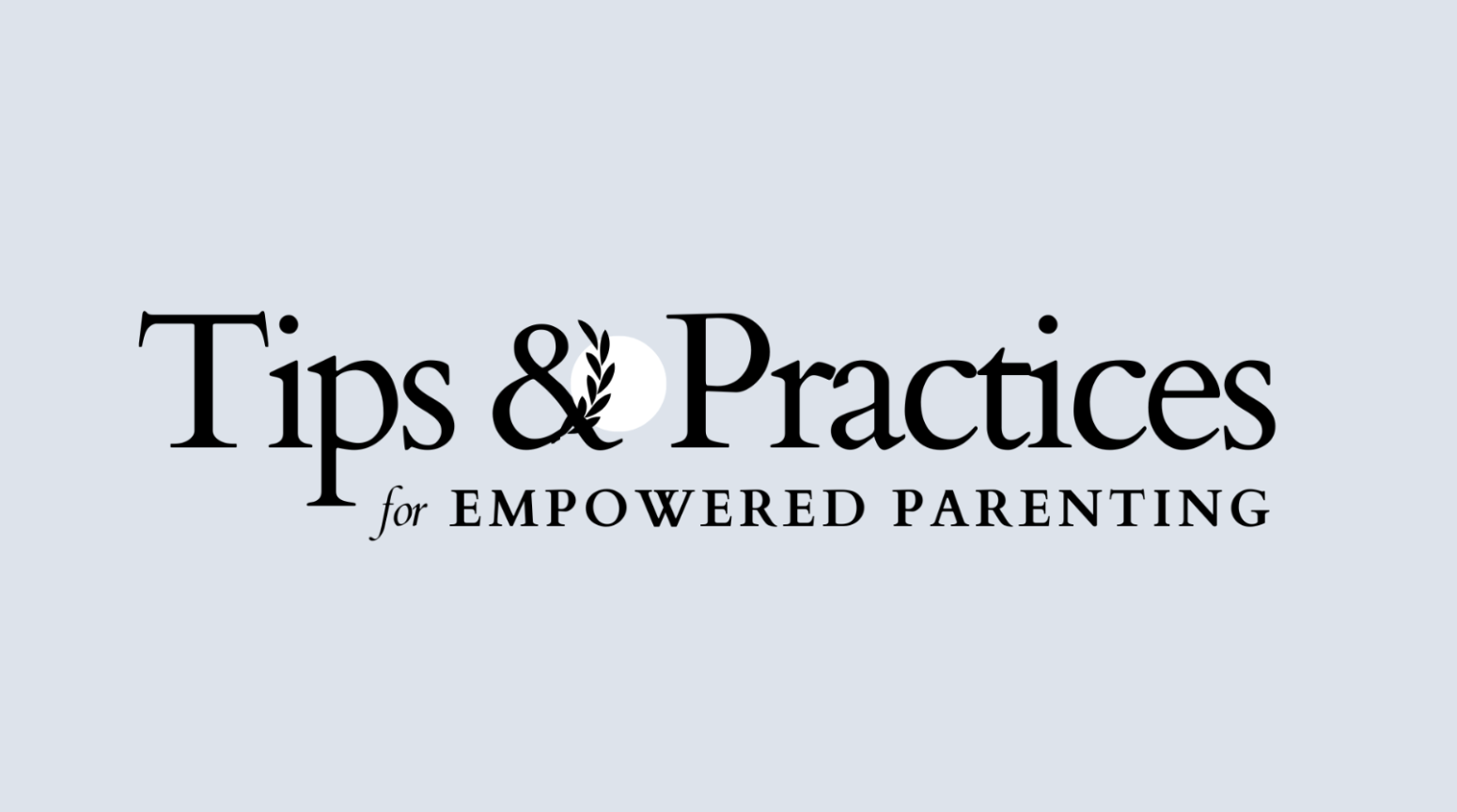
As parents, we spend so much energy trying to get it “just right.” The right rhythm. The right words. The right school. The perfect balance of freedom and structure. We tweak, research, and rearrange… hoping we’re building the best possible foundation. But what if it isn’t really about the package? What if what shapes our kids most isn’t what we offer, but how we hold it? How flexible we are when plans change. How honest we are when something isn’t working. How we show up, when we are messy, real, or still trying… with warmth and humility. This doesn’t mean making our children responsible for our struggles. It means letting them see that being human is allowed. That mistakes happen. That repair is possible. Good parenting isn’t about getting it all right. It’s about staying close. Even when things fall apart. Because what shapes our children most isn’t the perfect plan. It’s witnessing us hold life with honesty, self-forgiveness, and love.
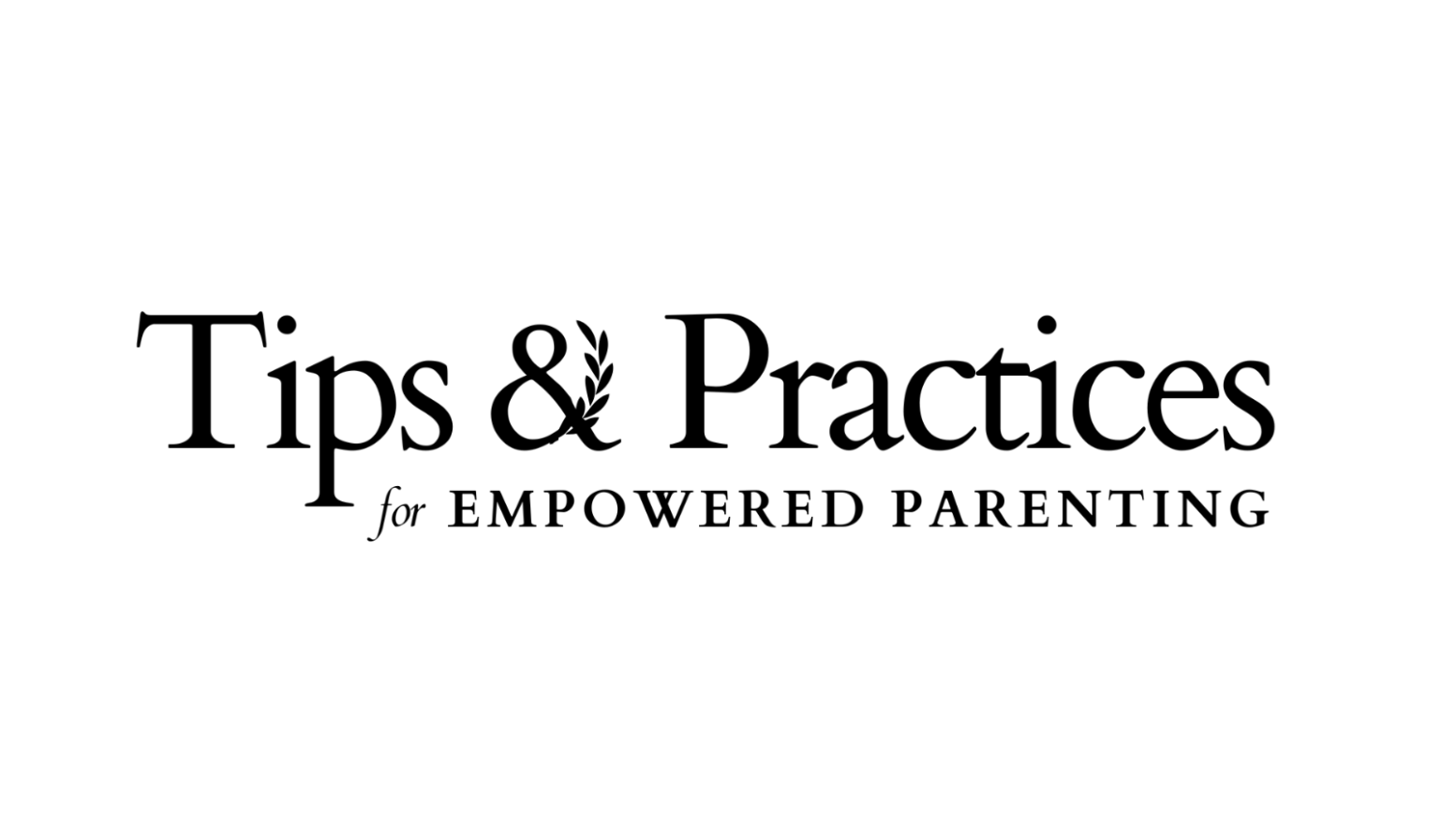
Have you ever tried to offer empathy… and it just didn’t land? You said something kind, hoping it would help. But your child got more upset, turned away, or raised their voice. Suddenly, you’re left wondering: “I was trying to connect?!? Why didn’t it work?!?” Here’s the thing: empathy is powerful. But only when it’s real. Sometimes, we’re not in a place to offer real empathy. We’re triggered. We’re judging. We’re desperate for the moment to shift. We don’t actually feel empathy, but the pressure to be the “good” parent can turn it into a performance. And performative empathy has a hidden agenda: to make the moment okay, to stop the feelings from happening. That’s why it doesn’t land. It’s not really about them. It's about us. But real empathy? It has no agenda. It doesn’t rush or fix. It simply says: I see you. I get it. You make sense. Even if nothing changes. That’s what disarms the moment… not the “right” words, but the felt sense that you’re willing to stay in it with them.

Your child refuses. You repeat the request… louder. They yell. You threaten. They slam the door. Your body tightens. You feel angry. That little voice says: I’m failing. This is the spiral. And every parent has been here. In those moments, control feels like the only option. If they’d just comply… Right? But here’s the truth: control may bring short-term obedience, but it rarely builds long-term trust. The real shift isn’t in what you say next. It's in what you check inside.

Have you ever reacted to your child in a way that went against your values, and wondered, “Why did I do that?” It’s not because you’re failing. When our nervous system goes into fight, flight, or freeze, the part of our brain that holds empathy and choice goes offline. Survival takes over. That’s why change isn’t about “trying harder.” It’s about learning to anchor ourselves when we’re triggered so we can return to presence and model regulation for our kids.
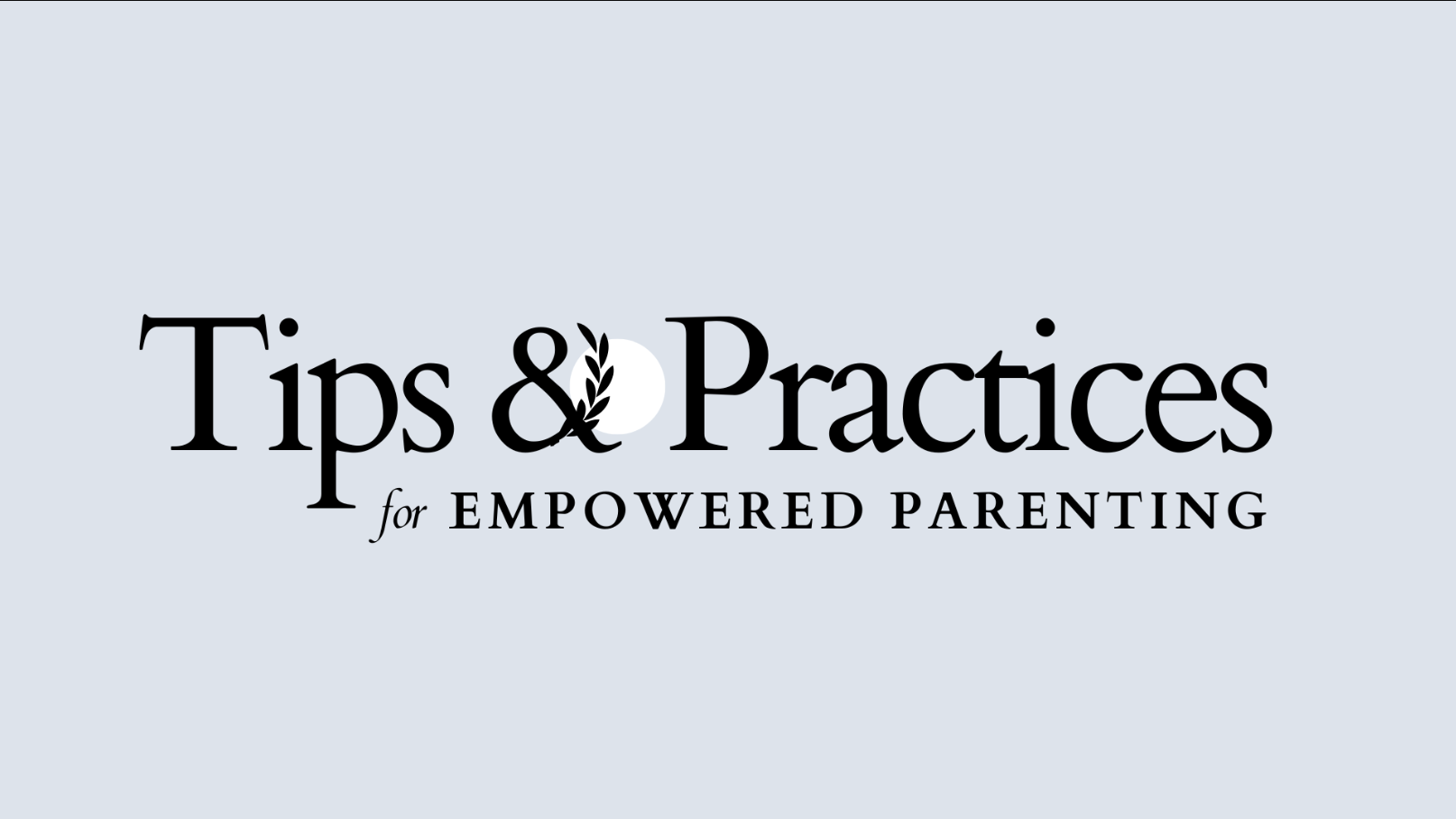
We live in a world obsessed with behavior. Parents are told: If your child is well-behaved, you’re succeeding. If not, you’re failing. But here’s the truth… Behavior is only the tip of the iceberg. Beneath it lies a much richer story… the why behind our children’s actions. Every challenging behavior (in kids or adults) has roots in feelings, needs, beliefs, and nervous system patterns. It carries the imprint of a whole life history, shaping how someone perceives and reacts to a moment. When we stop at the surface and try to control behavior, we miss the chance to connect. We miss the chance to teach our children how to express what’s underneath in ways that help them feel seen, supported, and safe.
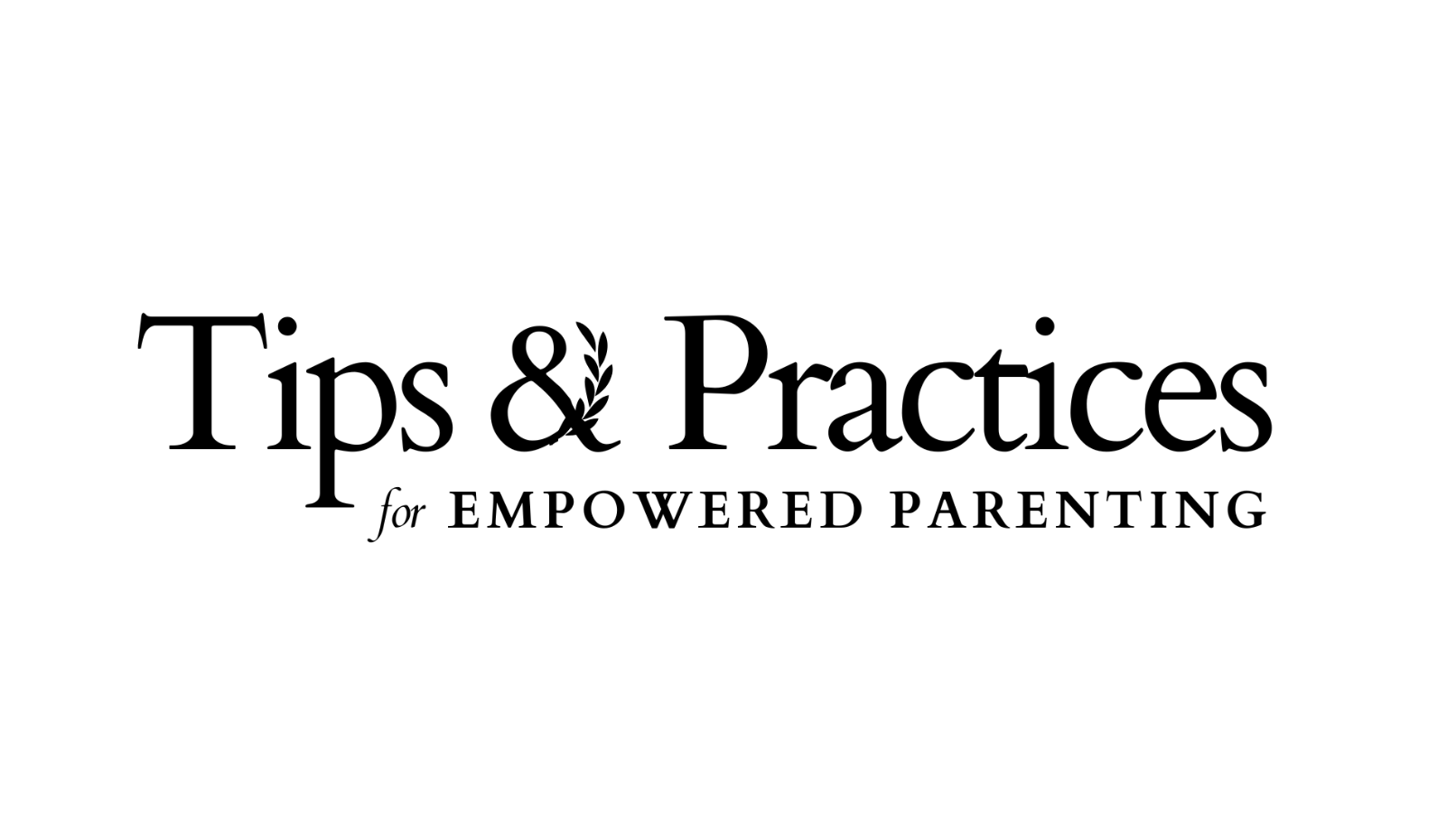
Did you know our brains are wired to pay more attention to the negative than the positive? It’s called Negativity Bias . For our ancestors, this was essential: noticing the rustle in the bushes that might signal danger mattered more than noticing a beautiful sunset. Helpful for survival? Absolutely. But in modern life, especially in parenting, this bias makes it harder to see what’s good. Parenting gives us plenty of moments that feel hard, messy, or overwhelming. If we aren’t intentional, stress and struggle can become the only things we notice. That’s why practices that anchor us in presence and gratitude are so powerful. They retrain our brains to notice goodness, too. As Steve Maraboli says, “If you want to find happiness, find gratitude.” We often imagine happiness is waiting at some milestone: when the baby sleeps through the night, when the fighting stops, when life finally feels easier. But in truth, happiness grows from noticing the small glimmers of goodness already here. So dear parent… What can you celebrate today that’s going well in your family?

You’re not just raising your kids. You’re also raising the younger version of yourself who didn’t get what they needed. Think about it… Every stubborn “no,” every meltdown, every slammed door can feel like an echo from your own childhood. Sometimes those echoes sound like the words you wish someone had said to you. Other times, they mirror the moments you promised yourself you’d never repeat. That’s why parenting can feel so big sometimes. The challenging moments we face with our kids aren’t just about this moment. They’re tangled up with the past, with the experiences we carried forward from being kids ourselves. And here’s the beautiful part: That overlap is also a doorway. When we connect what we felt as a child to what our child is feeling now, we unlock more compassion, more empathy, and more room to respond the way we wish our parents had. Our own childhood becomes a map that can guide us to lead the moment differently than it was led for us. Over time, every hard moment becomes a chance to guide our kids and tend to the younger self inside us who needed something different.

Have you ever watched your child make a choice that made your stomach drop? Maybe they yelled at their sibling, “I hate you! I wish you were never born.” Maybe they hurt a friend on purpose because they were hurting inside. Or maybe they ignored a responsibility and got in trouble at school. In those moments, our first reaction is often to get triggered. This simply means our nervous system has been activated. It's automatic. When that happens, our bodies respond as if we’re in danger. The prefrontal cortex, the part of our brain responsible for slower thinking and intentionality, becomes less accessible, and we move into our emotional, reactive brain. From a survival standpoint, this makes sense. In the wild, we need that adrenaline to run or protect ourselves. But in parenting? That same nervous system response often leads us to react in ways that create disconnection and guilt. We yell. We grab for control. We punish. And while we may have good intentions… to “teach a lesson”... What kids actually learn from punishment and shame is not usually the deeper lesson we hope for. Yes, they may avoid the behavior next time, but they miss the chance to truly understand: Why they did what they did How to express themselves differently How to honor both their feelings and needs while making a better choice So, how do we help them learn that kind of lesson? We slow down. We get intentional. We practice being in relationship with our own nervous system. We look beneath the “bad behavior” to the feelings and needs driving it.

We talk so often about listening to our children. But what about listening to ourselves? What if our emotions, even the big, messy, inconvenient ones… Aren’t problems to fix, but messages to hear? Anger might be the part of you that longs to protect what matters. Grief is the part that remembers what you love. Fear, the one still learning how to feel safe. Even numbness has something to say: “I’m not ready yet. Please go slow.” At Jai, we believe all feelings are welcome. Not because they’re easy, but because each one carries wisdom. Our nervous system is wired to protect us based on our past. If we were taught as children that it wasn’t safe to feel, it makes sense that it still feels hard to feel now. But when we soften our defenses and stop trying to manage our emotions, we begin to hear them. There’s no such thing as a “bad” feeling. There are only feelings. Waiting to be felt.
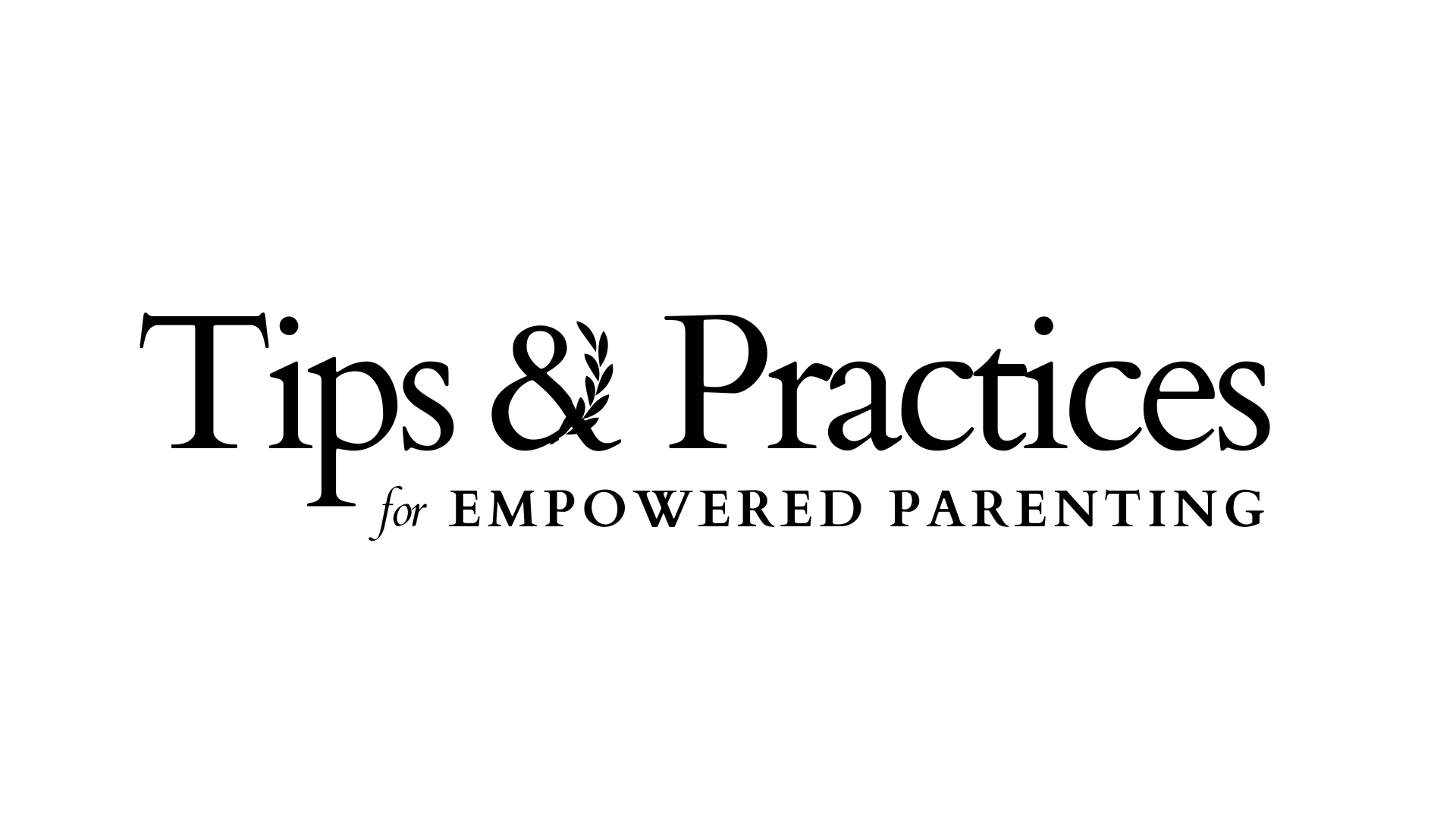
Parenting is often thought of as a choice between two options: we’re either in charge or we are permissive. We either lay down the law, or we let it go. It’s easy to fall into the trap of swinging between power over and permissiveness , especially when we’re exhausted or unsure. But there’s another way. It’s a middle path… One that holds both leadership and connection at the center. Here at Jai, we call it the Empowered Parenting path. This middle path isn’t always tidy and clear. It requires us to slow down, step out of urgency, and listen for what the moment is asking of us. It invites us to lead with creativity, not just control. To hold the container without gripping it too tightly. And to let our children relax into our presence, not our power.
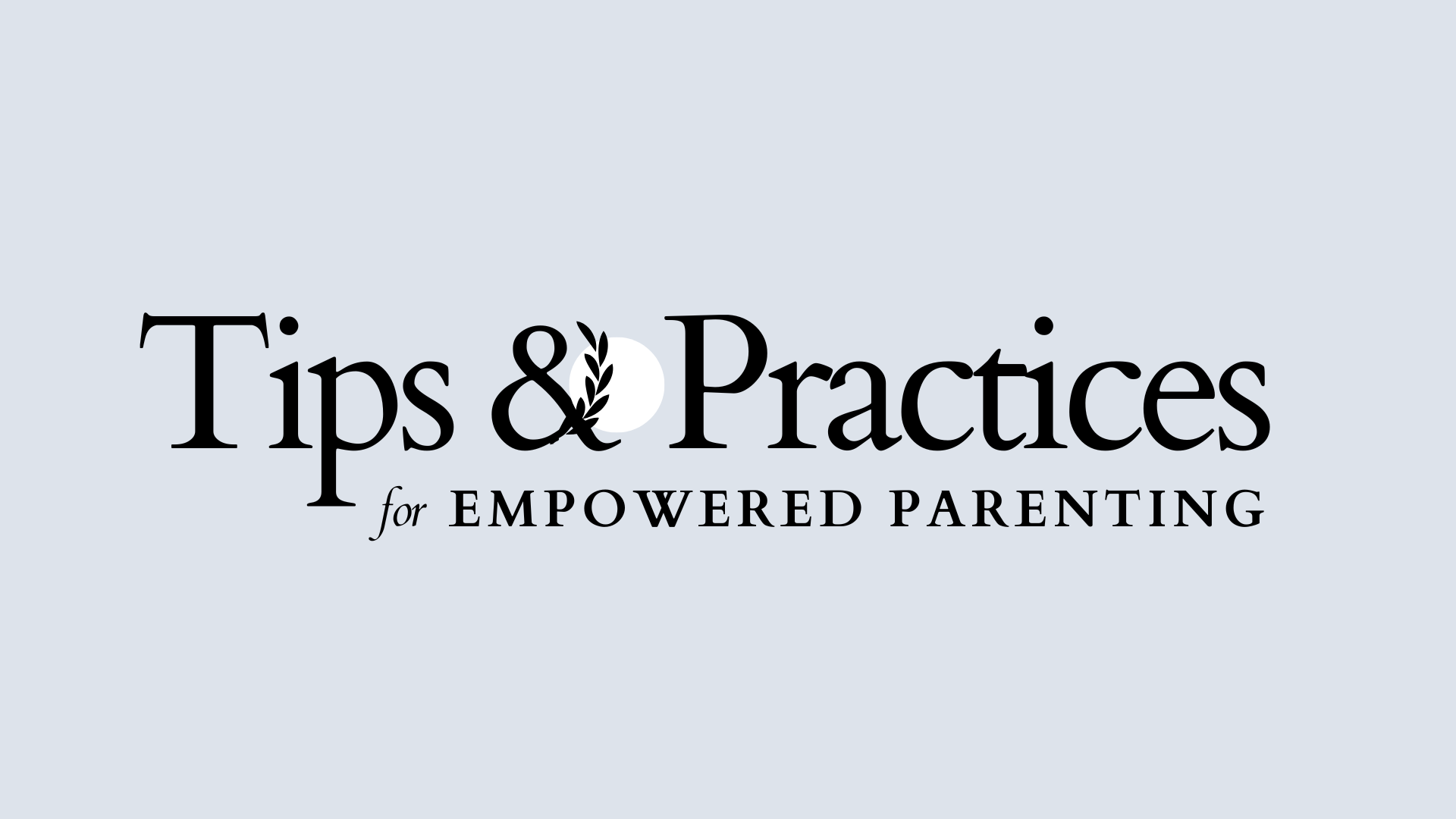
We’ve all been there… That moment when your child refuses to do what you ask. Maybe they blatantly ignore you. Maybe they stare right at you while doing the exact opposite. You feel your emotional temperature rising. And what do you reach for? Control. Cue the threats, shame tactics, judgments, and fiery tone of voice: “If you don’t do what I say right now, then…” “Stop being like that!” “How could you do such a thing?” All signals that say, “ I’m in charge. I’m in control. Not you. ” And what happens next? Maybe your child folds – but the connection is gone. Or maybe they fight harder, pushing back with even more intensity. Either way, it’s a rupture. You both walk away a little more frayed. When we feel out of control, we try to control our children. It’s a protective impulse, rooted in fear. Deep breath. Rewiring these patterns isn’t easy. It takes work on every level – mindset, heart, and body (especially the nervous system).

It’s so easy, in parenting, to get caught in the story of “I need to get it right.” But the more we strive for perfection, the more pressure we feel. And pressure doesn’t make us better parents… it just makes everything harder. Parenting is already demanding enough without the added weight of trying to have all the right answers. So… what do we do instead? At Jai, we believe the missing ingredient for so many families is empowerment. We humans, big and small, need to feel empowered in order to grow. We don’t grow in shame, punishment, or pressure. When we’re controlled or criticized, we tend to collapse, repress, perform, or people-please. But what if your greatest parenting asset wasn’t getting it “right,” but learning to lead with creativity, flexibility, and self-trust? Imagine if you understood your nervous system and your triggers and had tools to return to calm in the heat of a hard moment. Imagine if, every time your child acted out, you could see what was underneath the behavior and meet it with compassion. Imagine if conflict didn’t make you fearful, but sparked curiosity and connection instead. Imagine having the capacity to meet the toughest moments not with a perfect plan, but with presence, clarity, and choice. At Jai, we believe one of the most powerful parenting tools is creativity, not as performance or perfection, but as a tool to access new possibilities.

There’s a belief we hold deeply at Jai: Every behavior makes sense. That doesn’t mean every behavior is okay. It means there’s always a reason beneath it. Behavior is communication. It's a signal, a story, a clue. When a child yells, hits, or melts down over something that seems small, it might not be about that moment at all. When we meet our kids with curiosity instead of judgment, we create space for growth, healing, and connection. And here’s something even bigger to hold: Every person makes sense. Not just their behavior, but their story, their patterns, and their way of moving through the world. If you looked back at the details of any person’s life, you'd start to understand why they are who they are and why they do what they do. But we live in a world that doesn’t always leave space for that. We’re taught that people should behave a certain way to be accepted. We use tools like blame, shame, and judgment to try to fit ourselves and others into a mold. We fear being different. We long to belong. We fear our own humanity. And when a child is born, they are welcomed into a long line of generational patterns and societal expectations. The family becomes the first teacher of love, of safety, of how to be human. That’s why the work of healing families is so profound. When we parents heal ourselves, we offer that healing to our children.

At Jai, we hold a core belief: Every person, whether a child or adult, is doing the best they can with the tools they have in the moment. Doing our best doesn’t mean we’ll always act “good.” It means we act in ways that reflect how much or little we feel safe, connected, or regulated on the inside. When we or our children act out with challenging behaviors (and let’s be honest, adults do it too), it’s usually because there’s pain, unmet needs, or nervous system dysregulation underneath the surface. Try this on: “If you could, you would. And when you can, you will.” What do you notice in your body as you read that? A softening? An eye roll? Resistance? Relief? Whatever it is… that’s a doorway into deeper self-understanding. Here’s what brain science tells us: The brain doesn’t grow from shame, criticism, or punishment. It grows through support, safety, and relationships. Think of the best teacher or mentor you’ve ever had. Were they yelling at you to “do better”? Or were they firm, respectful, and deeply invested in your success? When children feel empowered, they grow. When parents feel empowered, they grow, too. That’s what we do at Jai. We help parents reconnect to their power. Not power over their children, but power with—the kind that comes from self-awareness, emotional attunement, and conscious leadership. It begins with us…Looking inward…Getting curious about why we parent the way we do and exploring what’s possible when we start to shift.

Did you know that the natural lifespan of an emotional reaction is just 90 seconds? Harvard brain scientist Dr. Jill Bolte Taylor explains that when an emotion is triggered, a chemical process unfolds in the body that lasts about a minute and a half. After that, any continuation of the emotion is no longer physiological… It’s something we’re sustaining with our thoughts. We ruminate. We avoid. We resist. We interrupt the natural process instead of allowing it to move through us. And when we witness our children having an emotional reaction, we often respond in the same way we've been taught to respond to ourselves. We try to manage it. Fix it. Control it. Sometimes, we step in with lessons or lectures before the emotional wave has even passed. When a child is overwhelmed, melting down, yelling, or crying over something that may not make sense to us, it's easy to say: "Why don’t you just...” “We don’t throw things in this house.” “Come on, it’s not a big deal.” But in moments of big emotion, the brain isn’t in a state to learn. What your child needs most isn’t a correction. They need a life raft. A calm, steady presence. A parent who can stay grounded and offer connection in the middle of the storm. And once that storm has passed… the teaching can begin.

This is a special message for the fathers in our community. We want to say, from the bottom of our hearts: thank you for being here. Fatherhood today asks more of men than ever before , and we know that’s no small thing. Many dads grew up with role models who taught them that strength meant silence or that control was the same as leadership. So it makes sense that stepping into a new model of fatherhood—one that leads with connection, presence, and emotional integrity—can feel unfamiliar and even vulnerable. And yet here you are. Showing up. Learning. Trying. That alone is powerful. Every time you pause instead of reacting, listen instead of fixing, or own a mistake instead of denying it, you’re changing the story for your children. You’re showing them what real strength looks like. And maybe, just maybe, you’re becoming the kind of father you always needed. The kind who loves deeply, holds boundaries with care, and isn’t afraid to feel. We see you. We honor you. And we’re so glad you’re here.

Parenting isn’t about always having the right answer. More often, it’s about how we show up… The energy we bring and the environment we create. When our children are overwhelmed by anger, frustration, or disappointment, it’s so natural to want to fix it. To jump into logic, offer a solution, or redirect their attention toward something lighter. Our intentions are loving. We want to help. And sometimes, it’s hard to sit with our child’s pain. But here’s the truth: children need to feel their feelings. They don’t need to be rescued. They don’t need a distraction. What they need is us... Present, grounded, and willing to witness it all without rushing to make it better. That’s what co-regulation looks like. It’s how kids learn that emotions aren’t dangerous and that hard feelings can be felt and survived. And it’s in that process that resilience and courage take root.

Moving from reactive to responsive parenting isn’t about trying harder. It’s about understanding your nervous system and gently working with it. You know those moments when you snap at your child, even after promising yourself you’d stay calm? They’re painful. But they’re also powerful. They shine a light on your growth edge. The place where your nervous system isn’t yet able to hold the intensity of the moment with calm, clarity, and compassion. At Jai, we believe that rewiring generational patterns starts with nervous system awareness. Are you in fight, flight, freeze… or connection? Each of these states brings its own parenting “toolkit.” When you learn to recognize where you are, you begin to choose your response instead of reacting automatically. Fight Mode: Your system senses danger and prepares to protect. You might find yourself raising your voice, tightening control, or moving with urgency. The goal is order, but it often severs the connection. Flight Mode: You’re trying to escape discomfort. You may disengage, rush through the moment, over-focus on fixing, or retreat into busyness. It’s a quiet kind of disconnection that can leave both you and your child feeling unseen. Freeze Mode: You shut down under overwhelm. You go blank or numb, unable to access any tools at all. Later, you might wonder, Why couldn’t I respond? It’s not failure, it’s a survival response. Ventral Vagal (Connection Mode): Here, you access your full relational toolkit—curiosity, empathy, play, and boundaries with compassion. It’s the state where parenting feels aligned, grounded, and true to your values. Shifting into this connected state begins before the storm. It starts with preparation. Learning to parent from this connected place means getting to know our triggers and preparing for dysregulation before it hits.

Here’s something worth remembering: every behavior is a form of communication. Behind every outburst, refusal, or meltdown is a feeling, a need, or a longing. This is true for children (and for us, too!!). When we remember that even most adults struggle to express their needs clearly, it becomes easier to have empathy for our kids. They’re still developing the tools to share what’s happening inside. So instead, they often use behavior to speak for them. And when we haven’t been taught how to listen beneath that behavior, it’s easy to get caught in reactivity or power struggles. At the Jai Institute, we help parents build the muscle of compassionate leadership , which is the ability to stay grounded, hold boundaries, and tune in to what’s really going on beneath the surface for the people in our care.

As parents, we spend so much time trying to get it right. And with so many voices out there claiming to have the answers, it can feel overwhelming. But here’s one truth that nearly every expert agrees on: Our children need our presence. Not perfection. Not performance. Just our steady, consistent, warm, and loving presence, offered as often as we can. And the truth is, that’s not always as often as we’d like. Being truly present takes a regulated nervous system, space in our busy lives, and the emotional capacity to stay grounded during hard moments. These aren’t things many of us were taught growing up. In today’s world, parenting with presence can feel like going against the current. At the Jai Institute, we believe in the power of community. When parents come together to learn, grow, and support one another, everything shifts. If you’re feeling overwhelmed right now, please know this: You are not alone. Support is available. Sometimes, the hardest step is simply finding a community that feels like home.

With Mother’s Day upon us here in the U.S., we want to offer you a gentle reminder. One that can so easily get drowned out in the noise of expectations, comparison, and pressure… You don’t have to be perfect. You don’t have to get it all right. You just have to keep showing up. With love, with curiosity, with courage. Good parenting isn’t about never making mistakes. It’s about being present. It’s about repair after the hard moments. It’s the giggles over breakfast, the hugs at bedtime, the willingness to try again… even when you're tired. So whether you’re being celebrated this weekend or simply holding it all together behind the scenes, we see you. You're doing one of the most important, invisible, and beautiful jobs in the world. And it matters.

Most of us would never think of ourselves as violent. We’re loving, devoted parents doing our best, often under stress, without enough support, and carrying patterns we didn’t choose. But if we pause and expand our definition of “violence” to include anything that erodes empathy, connection, or dignity… even subtly… we might start to see it differently. Not as a moral failing. But as a signal. A call to grow. Sometimes, in moments of overwhelm or frustration, we express our needs through judgment, blame, or criticism. Not because we want to hurt anyone, but because we’re hurting, too. “You're being dramatic.” → dismisses emotions. “If you don’t stop crying, you're going to your room.” → unintentionally threatens connection. “I’m such a bad mom.” → turns that pain inward. These patterns are often inherited, automatic, and unconscious. We learned them early, and they’re hard to unlearn. But we can learn something new. With self-compassion. With intention. And with practice. And it's worth it. Because our kids are worth it. And so are we.

What if parenting isn’t about shaping your child… but about letting yourself be shaped? What if every defiant moment, every meltdown, every spilled cup of milk or slammed bedroom door… Wasn’t a failure to fix… But an invitation to grow? Yes, we want to guide our children with love, boundaries, and wisdom. But when we focus only on changing them , we miss the deeper transformation waiting for us.

How do you build a home where honesty is safe, welcomed, and valued? The answer is simple to understand, but it can also be challenging to implement: Create a space where honesty is met with curiosity, compassion, and respect. As you reflect on this, consider: How do I respond when my child tells me something hard to hear? How do I react when I disagree with their choices? Do I panic? Do I lecture? (No need for self-recrimination, this is purely about gaining insight!) How safe do I feel being honest in my own family… with my parents (even now), my partner, or my kids? When we get honest about where we are, we can begin to build new relational skills. It starts with small, intentional steps.

What messages did you receive as a child about what it means to be “strong”? For many of us, strength was defined by “sucking it up,” pushing through, and hiding our feelings. We were often taught that vulnerability was weakness. But both neuroscience and developmental psychology now paint a different picture: suppressing emotions in the name of resilience can actually create more inner struggle… not less. What if real strength lives in the softness? Brené Brown puts it beautifully: strength is a “strong back, soft front, wild heart.” This kind of strength doesn’t come from being tough or perfect. It comes from being grounded, open, and brave. The beliefs we carry—often passed down through generations—shape how we show up for our children. If we see a child’s tears as “too much” or “dramatic,” we’re more likely to react with dismissal or frustration. But if we see those same tears as a sign that a child is having a hard time , we’re more likely to respond with the compassion they truly need.

When was the last time you lit up just because your child walked into the room? No test scores. No gold stars. No “good behavior.” Just the simple joy of them… Exactly as they are. In a world that constantly celebrates productivity and performance, it’s easy (and completely human) to slip into the habit of praising our kids for what they do rather than who they are. Encouragement can be a beautiful thing—but over time, it can unintentionally send a quiet message: You’re most lovable when you succeed. The truth is, our children are infinitely more than their achievements. They are worthy of love, joy, and deep connection simply because they exist. And when we, as parents, anchor ourselves in that truth, we offer our children one of the greatest gifts they’ll ever receive: the deep knowing that they don’t have to earn our love.

How many of your interactions with your child are rooted in fear or the need for control? And how many are guided by trust and connection? Most of us were raised within paradigms shaped by behaviorism , which is the idea that managing a child’s actions would lead to “good behavior,” and that compliance equaled success. But research in child development, attachment theory, and emotional intelligence tells a different story: behavior is communication. When we focus only on correcting behavior, we risk missing the deeper message beneath it—the feelings, the unmet needs, the longing to be seen and understood. If we want to truly support our children’s growth, we need to look beneath the surface. And often, that begins with shifting how we see our children—and ourselves. This kind of shift takes time. It asks us to explore the beliefs we’ve inherited, to sit with discomfort, and to begin parenting from a place of inner steadiness, self-compassion, and intention.

Have you ever watched your child have a big emotional reaction and felt at a total loss for what to do or how to help? For many of us, emotions weren’t openly talked about when we were growing up. We learned to push them aside, to "move on," or to "toughen up." So, when we see our own children experiencing intense feelings, it can feel overwhelming. We may even find ourselves panicking or feeling uncomfortable simply because we never learned how to navigate these moments. So what do we do? Sometimes, we try to distract them or lighten the mood. Other times, frustration takes over, and we say things like, “You’re being too sensitive” or “This isn’t a big deal.” And if you’ve ever responded that way, you’re not alone. It makes complete sense… When we haven’t been taught how to process emotions, they can feel intimidating. So, where do we go from here? We turn toward empathy. Empathy is the bridge that reconnects us to our kids in moments of big emotions. When we accept that strong feelings are a natural part of life (for them and for us), we create more space for safety, connection, and understanding. Instead of reacting from a place of discomfort, we can lean in with curiosity. And when we get curious, something powerful happens: We see our children for who they are, in the fullness of their experiences. Even the most “dramatic” or “illogical” reactions start to make sense when we approach them with compassion. And that’s where deeper connection begins.

When was the last time you allowed yourself to dream—not just for your children, but for you ? As parents, we spend so much energy encouraging our kids to reach for their potential, reminding them to take chances, believe in themselves, and pursue what lights them up. But here’s the truth: they are watching us just as much as we are watching them. If we want our children to reach for the sun, we have to show them what that looks like. This week, I invite you to take a moment for yourself—to pause and reflect: What truly excites me? What dreams have I put on hold? What do I want to model for my child—not just in words, but in action? How can I demonstrate growth in my own life? If you have some extra time, consider creating a dream inventory. Grab a journal or a piece of paper and jot down the dreams you have for yourself, your children, and your family. Then, take it one step further: for each dream, ask yourself, What is holding me back? Challenge yourself to go deeper than the usual answer of "not having enough time." Alongside this reflection, I want to offer you a simple yet powerful tool:

Take a moment to pause and ask yourself: When was the last time you truly encouraged your child? Not praised. Not reassured. But deeply encouraged them? Praise often sounds like: "Great job!" "You’re so smart!" "I’m so proud of you!" Encouragement sounds like: "I see how much effort you put into that." "You kept going even when it was hard—that takes courage." "What did you learn from that experience?" Encouragement fuels intrinsic motivation. It sends the message: I trust you. I believe in you. You are capable. When we encourage rather than praise, we shift the focus from external validation to internal growth. We teach our children to recognize their own resilience, problem-solving skills, and capacity to navigate life’s challenges.

Read Stories of Parent Coaching in the Real World


